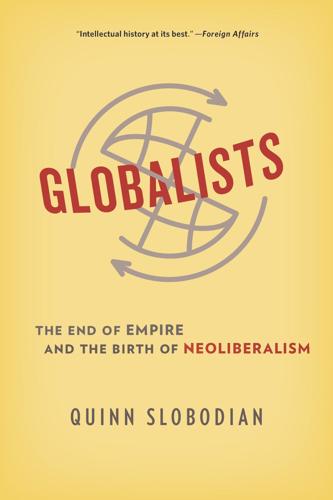
Globalists
by
Quinn Slobodian
Published 16 Mar 2018
Daniel Stedman Jones, Masters of the Universe: Hayek, Friedman, and the Birth of Neoliberal Politics (Princeton, NJ: Princeton University Press, 2012), 16; Keith Tribe, “Liberalism and Neoliberalism in Britain, 1930–1980,” in The Road from Mont Pèlerin: The Making of the Neoliberal Thought Collective, ed. Philip Mirowski and Dieter Plehwe (Cambridge, MA: Harvard University Press, 2009), 90; Sam Bowman, “Coming Out as Neoliberals,” Adam Smith Institute Blog, October 11, 2016, https://www.adamsmith.org/blog/coming-out-as-neoliberals. 13. Lars Feld quoted in Bert Losse, “Economic Neoliberalism: Philosophy of Freedom,” Handelsblatt Global, June 10, 2017. 14. Philip Mirowski, “The Political Movement That Dared Not Speak Its Own Name: The Neoliberal Thought Collective under Erasure,” Institute for New Economic Thinking Working Paper no. 23 (September 2014), 6. 15.
…
Hayek, “The Use of Knowledge In Society (1945),” in Hayek, Individualism and Economic Order, 86. 53. Ibid. 54. Paul Lewis and Peter Lewin, “Orders, Orders, Everywhere … On Hayek’s The Market and Other Orders,” Cosmos and Taxis 2 (2015): 15. 55. Philip Mirowski, “On the Origins (at Chicago) of Some Species of Neoliberal Evolutionary Economics,” in Building Chicago Economics: New Perspectives on the History of America’s Most Powerful Economics Program, ed. Robert Van Horn, Philip Mirowski, and Thomas A. Stapleford (New York: Cambridge University Press, 2011), 262. 56. Lewis, “The Emergence of ‘Emergence,’ ” 120. 57. F. A. Hayek, “The Theory of Complex Phenomena (1964),” in Studies in Philosophy, Politics and Economics, ed.
…
It may be more accurate to see Hayek as more a proponent of the idea of Homo regularis than of the idea of Homo economicus: The first commandment of humans is not to maximize profit but to react to stimuli according to rules in a way that will maximize the chance of survival. Humans, to Hayek, are “rules-following animals.”75 Rules, like prices, are signals directing the individual, often at a “super-conscious” level. Hayek’s “neuro-sensory conjecture” has been explored deeply by scholars both sympathetic to and critical of his thinking.76 What Philip Mirowski calls Hayek’s “agnotology” is echoed in the presumption of “radical ignorance” of economic actors in the work of those who seek to explain why Hayek’s model is incompatible with the “rational search” implied in contemporary forms of neoclassical economics.77 As the above metaphors make clear, the idea of agency is diffuse in Hayek’s work.
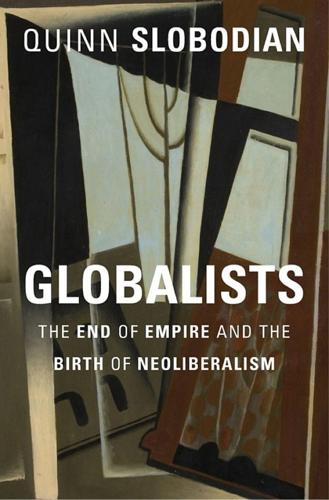
Globalists: The End of Empire and the Birth of Neoliberalism
by
Quinn Slobodian
Published 16 Mar 2018
Daniel Stedman Jones, Masters of the Universe: Hayek, Friedman, and the Birth of Neoliberal Politics (Princeton, NJ: Princeton University Press, 2012), 16; Keith Tribe, “Liberalism and Neoliberalism in Britain, 1930–1980,” in The Road from Mont Pèlerin: The Making of the Neoliberal Thought Collective, ed. Philip Mirowski and Dieter Plehwe (Cambridge, MA: Harvard University Press, 2009), 90; Sam Bowman, “Coming Out as Neoliberals,” Adam Smith Institute Blog, October 11, 2016, https://w ww.adamsmith.org / blog /coming-out-a s-neol ib er als. 13. Lars Feld quoted in Bert Losse, “Economic Neoliberalism: Philosophy of Freedom,” Handelsblatt Global, June 10, 2017. NOTES TO PAGE 3 291 14. Philip Mirowski, “The Political Movement That Dared Not Speak Its Own Name: The Neoliberal Thought Collective u nder Erasure,” Institute for New Economic Thinking Working Paper no. 23 (September 2014), 6. 15.
…
Hayek, “The Use of Knowledge In Society (1945),” in Hayek, Individualism and Economic Order, 86. 53. Ibid. 54. Paul Lewis and Peter Lewin, “Orders, Orders, Everywhere . . . On Hayek’s The Market and Other O rders,” Cosmos and Taxis 2 (2015): 15. 55. Philip Mirowski, “On the Origins (at Chicago) of Some Species of Neoliberal Evolutionary Economics,” in Building Chicago Economics: New Perspectives on the History of America’s Most Powerful Economics Program, ed. Robert Van Horn, Philip Mirowski, and Thomas A. Stapleford (New York: Cambridge University Press, 2011), 262. 56. Lewis, “The Emergence of ‘Emergence,’ ” 120. 57. F. A. Hayek, “The Theory of Complex Phenomena (1964),” in Studies in Philosophy, Politics and Economics, ed.
…
It may be more accurate to see Hayek as more a proponent of the idea of Homo regularis than of the idea of Homo economicus: The first commandment of humans is not to maximize profit but to react to stimuli according to rules in a way that will maximize the chance of survival. Humans, to Hayek, are “rules-following animals.”75 Rules, like prices, are signals directing the individual, often at a “super-conscious” level. Hayek’s “neuro-sensory conjecture” has been explored deeply by scholars both sympathetic to and critical of his thinking.76 What Philip Mirowski 232 GLOBALISTS calls Hayek’s “agnotology” is echoed in the presumption of “radical ignorance” of economic actors in the work of t hose who seek to explain why Hayek’s model is incompatible with the “rational search” implied in contemporary forms of neoclassical economics.77 As the above metaphors make clear, the idea of agency is diffuse in Hayek’s work.
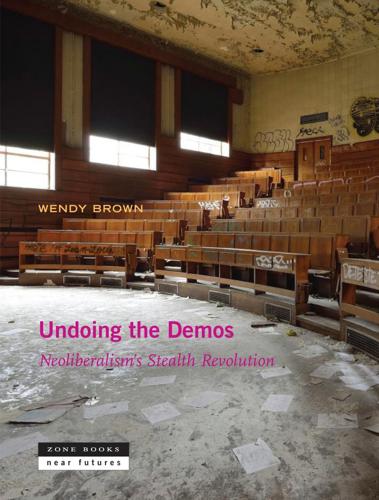
Undoing the Demos: Neoliberalism's Stealth Revolution
by
Wendy Brown
Published 6 Feb 2015
They are charted by a range of thinkers including Gérard Duménil and Dominique Lévy in The Crisis of Neoliberalism, Michael Hudson in Finance Capitalism and Its Discontents, Yves Smith in E-CONned: How Unrestrained Self-Interest Undermined Democracy and Corrupted Capitalism, Matt Taibbi in Griftopia: A Story of Bankers, Politicians and the Most Audacious Power Grab in American History, and Philip Mirowski in Never Let a Serious Crisis Go to Waste: How Neoliberalism Survived the Financial Meltdown.28 Intensified inequality, crass commodification and commerce, ever-growing corporate inf luence in government, economic havoc and instability — certainly all of these are consequences of neoliberal policy, and all are material for loathing or popular protest, as indeed, Occupy Wall Street, the Southern European protests against austerity policies, and, earlier, the “Antiglobalization” movement loathed and protested them.
…
University administrations use the language of best practices to implement reorganizations and cuts with enormous implications for student access, staff positions, and education itself, to discuss the policing of demonstrations, and to prepare “rollouts” of new information systems and/or benefits policies.43 Philip Mirowski describes a consulting service called Family/360 that, for a price, provides tailored best practices for parents to help them “create more positive family memories for [their] children.”44 Legislation introduced to prohibit the use of live animals (pigs and goats) in U.S. armed forces combat training was named the BEST Practices Act (the Battlefield Excellence through Superior Training Practices Act).45 An independent association of funeral homes runs a competition for best practices by funeral homes that awards the winner an iPad Air.46 While best practices are promiscuous across research protocols, service agencies, industries, investment strategies, policing, and more, equally striking is their traffic across these and thus their effect in reconfiguring policing, education, military, and social-service activity through a business model.
…
There is now a fine set of intellectual histories of neoliberalism, including Peck, Constructions of Neoliberal Reason; Daniel Stedman Jones, Masters of the Universe: Hayek, Friedman, and the Birth of Neoliberal Politics (Princeton: Princeton University Press, 2012); Pierre Dardot and Christian Laval, The New Way of the World (New York: Verso, 2014); Philip Mirowski, Never Let a Serious Crisis Go to Waste (New York: Verso, 2013); and Angus Burgin, The Great Persuasion: Reinventing Free Markets since the Depression (Cambridge, MA: Harvard University Press, 2012). Each of these works contributes to an appreciation of neoliberalism as emerging from several streams of dissident thought in the postwar period, eventually taking shape as a governing rationality that drew on and diverged from these waters.
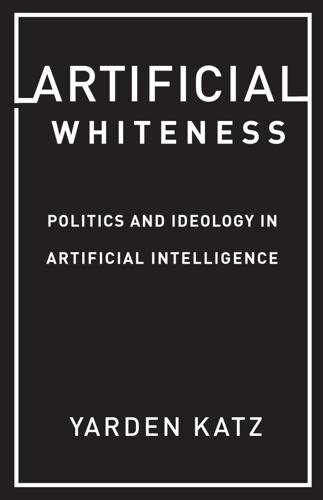
Artificial Whiteness
by
Yarden Katz
Sam Shead, “Google I/O: Google Research Becomes Google AI,” Forbes, May 9, 2018. 18. Alain Supiot, The Spirit of Philadelphia: Social Justice vs. the Total Market (New York: Verso, 2012). 19. Philip Mirowski, Science-Mart: Privatizing American Science (Cambridge, Mass.: Harvard University Press, 2011), 25. 20. For an analysis of the interest of major platform companies (such as Facebook) in scientific research, see Philip Mirowski, “The Future(s) of Open Science,” Social Studies of Science 48, no. 2 (2018): 171–203. 21. Kurt Wagner, “Mark Zuckerberg’s Philanthropy Organization Is Acquiring a Search and AI Startup Called Meta,” Recode, January 24, 2017. 22.
…
Irani, 228. 39. Vinyals et al., “Show and Tell.” 40. Xiaoliang Ling et al., “Model Ensemble for Click Prediction in Bing Search Ads,” in Proceedings of the 26th International Conference on World Wide Web Companion, 2017, 689–98. 41. Philip Mirowski, Machine Dreams: Economics Becomes a Cyborg Science (Cambridge: Cambridge University Press, 2002); Philip Mirowski, Science-Mart: Privatizing American Science (Cambridge, Mass.: Harvard University Press, 2011). 42. Hayek writes, “A pre-formation of an order or pattern in a brain or mind is … an inferior method of securing an order.” Friedrich A.
…
That is, AI’s new progressive rebranding is not a real departure from the field’s imperial roots but rather an adaptation to changing political sensibilities. “AI” REAPPEARS, AN EXPERT INDUSTRY ASSEMBLES Usage of the term “AI” spiked around the mid-2010s in both global and U.S. media (see figure 2.1). While AI drew great media attention several decades earlier, in the mid-1980s and early 1990s, interest then dwindled. In 2002 historian Philip Mirowski wrote that “AI has apparently lost the knack of blinding people with science, at least for now.”1 It was only around 2013 that usage rose sharply again, and within a few years “AI” seemed to be everywhere. An expert industry quickly assembled around AI: universities launched centers and degree programs on AI and society, think tanks began writing AI policy papers, and the media started talking about AI nonstop.
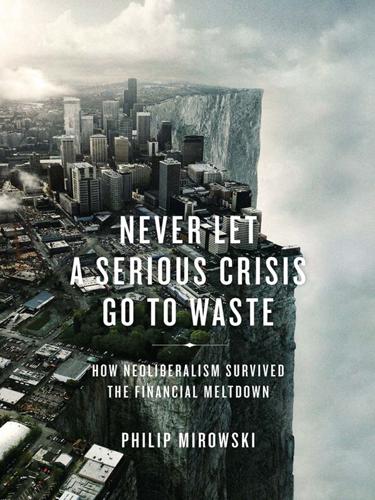
Never Let a Serious Crisis Go to Waste: How Neoliberalism Survived the Financial Meltdown
by
Philip Mirowski
Published 24 Jun 2013
Van Horn, Robert, and Matthias Klaes. “Chicago Neoliberalism Versus Cowles Planning: Perspectives on Patents and Public Goods,” Journal of the History of the Behavioral Sciences 47 (2011): 302–21. Van Horn, Robert, and Philip Mirowski. “The Rise of the Chicago School and the Birth of Neoliberalism,” in Mirowski and Plehwe, The Road from Mont Pèlerin. Van Horn, Robert, Philip Mirowski, and Thomas Stapleford, eds. Building Chicago Economics (New York: Cambridge University Press, 2011). Veblen, Thorstein. The Theory of the Leisure Class (New York: Mentor, 1953). Vernon, Richard. “The Great Society and the Open Society: Liberalism in Hayek and Popper,” Canadian Journal of Political Science 9 (1976): 261–76.
…
(Frank) When Prophecy Fails (Festinger) Whinston, Michael, Microeconomic Theory, White, Lawrence White House White Mountains Wikipedia Will, George Williamson, Stephen Winners curse Winter, Sidney Wolf, Martin Wolin, Sheldon Woodford, Michael World Bank World of Natural Order World War II Wren-Lewis, Simon WTO (World Trade Organization) Y Yale University Z Zingales, Luigi Zoellick, Robert Zombie Economics (Quiggin) Zuccotti Park Zuidhof, Peter-Wim Copyright First published by Verso 2013 © Philip Mirowski 2013 All rights reserved The moral rights of the author have been asserted Verso UK: 6 Meard Street, London W1F 0EG US: 20 Jay Street, Suite 1010, Brooklyn, NY 11201 www.versobooks.com Verso is the imprint of New Left Books ISBN: 978-1-781-68393-3 (e-book) British Library Cataloguing in Publication Data A catalogue record for this book is available from the British Library Library of Congress Cataloging-in-Publication Data Mirowski, Philip, 1951– Never let a serious crisis go to waste : how neoliberalism survived the financial meltdown / Philip Mirowski. pages cm Includes bibliographical references and index.
…
Never Let a Serious Crisis Go to Waste How Neoliberalism Survived the Financial Meltdown Philip Mirowski To neoliberals of all parties Contents List of Tables List of Figures 1. One More Red Nightmare The Crisis That Didn’t Change Much of Anything 2. Shock Block Doctrine Neoliberalism as Thought Collective and Political Program 3. Everyday Neoliberalism 4. Mumbo Jumble The Underwhelming Response of the Economics Profession to the Crisis 5. The Shock of the New Have Neoclassical Economists Learned Anything at all from the Crisis? 6. The Red Guide to the Neoliberal Playbook Notes Bibliography Index Copyright List of Tables 4.1 Average profit per employee, United States 5.1 Economist salary differentials, by academic sector List of Figures 1.1 Hilarity at the Federal Reserve 2.1 Growth of MPS-affiliated think tanks 2.2 MPS founding meeting, national representation 2.3 MPS 1991 membership, national representation 2.4 Mentions of Friedrich Hayek in various English-language sources 4.1 Corporate profits/U.S.
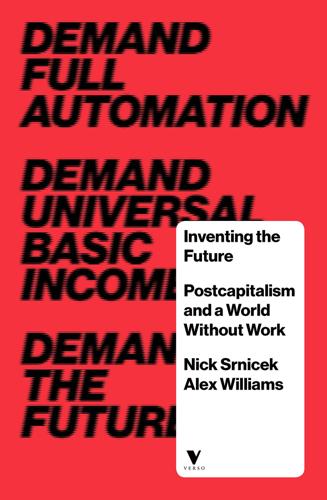
Inventing the Future: Postcapitalism and a World Without Work
by
Nick Srnicek
and
Alex Williams
Published 1 Oct 2015
THE MAKING OF NEOLIBERAL HEGEMONY 1.Jamie Peck, Constructions of Neoliberal Reason (Oxford: Oxford University Press, 2010), p. 40. 2.This standard history is now in the process of being rewritten, and this chapter relies heavily on the pioneers of this research, including the unpublished work of Alex Andrews. See, for example, Philip Mirowski and Dieter Plehwe, eds, The Road from Mont Pelerin: The Making of the Neoliberal Thought Collective (Cambridge, MA: Harvard University Press, 2009); Philip Mirowski, Never Let a Serious Crisis Go to Waste: How Neoliberalism Survived the Financial Meltdown (London: Verso, 2013); Peck, Constructions of Neoliberal Reason; Daniel Stedman Jones, Masters of the Universe: Hayek, Friedman, and the Birth of Neoliberal Politics (Princeton, NJ: Princeton University Press, 2012); Richard Cockett, Thinking the Unthinkable: Think-Tanks and the Economic Counter-Revolution, 1931–1983 (London: Fontana, 1995); Michel Foucault, The Birth of Biopolitics: Lectures at the College de France 1978–1979 (New York: Palgrave Macmillan, 2010). 3.Witness, for instance, the unlikely but immensely productive alliance in the United States between economic neoliberals and radical social conservatives.
…
Secondly, they sought to build a counter-hegemonic project that would overturn the consensus around social democracy and Keynesian policies. They took a full-spectrum approach to changing hegemonic conditions and built up an entire ideological infrastructure that was capable of insinuating itself into every political issue and every fibre of political common sense. It overthrew the hegemonic ideas of its time. As Philip Mirowski writes, their strategic genius was to appreciate that it is not enough to dangle a utopian vision just beyond reach as eventual motivation for political action; the cadre that triumphs is the side that can simultaneously mount a full set of seemingly unrelated political proposals that deal with the short-, medium-, and long-term horizons of action, combining regimes of knowledge and interim outcomes, so that the end result is the inexorable movement of the polis ever closer to the eventual goal.
…
Smith et al., Validity of Food Miles, p. 3. 82.Doug Henwood, ‘Moving Money (Revisited)’, LBO News, 2010, at lbo-news.com. 83.Stephen Gandel, ‘By Every Measure, the Big Banks Are Bigger’, Fortune, 13 September 2013, at fortune.com. 84.Victoria McGrane and Tan Gillian, ‘Lenders Are Warned on Risk’, Wall Street Journal, 25 June 2014. 85.OTC Derivatives Statistics at End-June 2014, Basel: Bank for International Settlements, 2014, p. 2, at bis.org. 86.David Boyle, A Local Banking System: The Urgent Need to Reinvigorate UK High Street Banking (London: New Economics Foundation, 2011), p. 8. 87.Ibid., pp. 8–9. 88.Giles Tremlett, ‘Spain’s Savings Banks’ Culture of Greed, Cronyism, and Political Meddling’, Guardian, 8 June 2012. 89.Boyle, Local Banking System, p. 10. 90.Andrew Bibby, ‘Co-op Bank Crisis: What Next for the Co-operative Sector?’, Guardian, 21 January 2014. 91.Greg Sharzer, No Local: Why Small-Scale Alternatives Won’t Change the World (Winchester: Zero Books, 2012), p. 3. 92.Philip Mirowski, Never Let a Serious Crisis Go to Waste: How Neoliberalism Survived the Financial Meltdown (London: Verso, 2013), p. 326. 93.Zibechi, ‘Latin America Today’. 94.Christian Marazzi, ‘Exodus Without Promised Land’, in Campagna and Campiglio, eds, What We Are Fighting For, p. viii. 95.Such an approach has also been labelled ‘alternativism’ by communisation theorists.
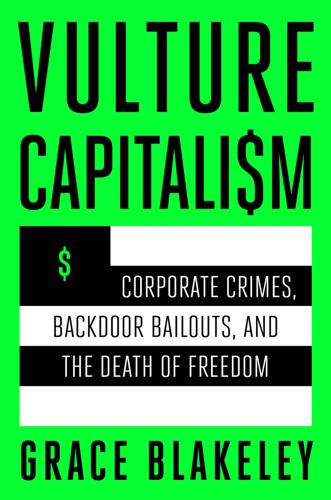
Vulture Capitalism: Corporate Crimes, Backdoor Bailouts, and the Death of Freedom
by
Grace Blakeley
Published 11 Mar 2024
Von Hayek, The Road to Serfdom: Text and Documents—The Definitive Edition (Chicago: University of Chicago Press, 2007). 11. John Maynard Keynes, The General Theory of Employment, Interest, and Money (New York: Springer, 2018). 12. Philip Mirowski, Never Let a Serious Crisis Go to Waste: How Neoliberalism Survived the Financial Meltdown (London: Verso Books, 2014). 13. Hayek, Road to Serfdom. 14. Philip Mirowski and Dieter Plehwe, The Road from Mont Pèlerin: The Making of the Neoliberal Thought Collective (Cambridge, MA: Harvard University Press, 2015). 15. William Davies, “The Neoliberal State: Power against ‘Politics,’ ” in Damien Cahill, Melinda Cooper, Martijn Konings, and David Primrose (eds.), SAGE Handbook of Neoliberalism (Thousand Oaks, CA: SAGE Publications Ltd., 2018), 273–83, https://doi.org/10.4135/9781526416001.n22; Mirowski, Never Let a Serious Crisis Go to Waste. 16.
…
Policies could be developed without any “politics” at all.108 And yet, these claims to legal neutrality are always and everywhere undermined by the actual practice of neoliberal policymaking, in which policymakers are expected regularly to receive feedback from “key stakeholders.”109 These stakeholders are those with the most knowledge of the policy area under discussion, which generally means they are the very people the policy is most likely to affect. “Vested interests” return to the policymaking process in the guise of “technical experts.” Neoliberalism was never about “shrinking” the state, it was about “seizing and then retasking” it.110 Many of the founders of neoliberalism would have admitted as much. As Philip Mirowski points out, the maxim of the neoliberals could be summed up as “[o]nly a strong state can preserve and enhance a free-market economy.” Only a strong, “laser focused” state could hope to insulate itself from the demands of “the masses.”111 In other words, state power hasn’t expanded because the neoliberal dream was subverted; it has expanded precisely because the neoliberals took control.
…
Ferreras, Firms as Political Entities. 25. Michael Hudson and Ahmet Oncu, Absentee Ownership and Its Discontents: Critical Essays on the Legacy of Thorstein Veblen (NP: ISLET, 2016). 26. Martin Beddeleem, “Recoding Liberalism: Philosophy and Sociology of Science against Planning,” in Quinn Slobodian, Dieter Plehwe, and Philip Mirowski (eds.), Nine Lives of Neoliberalism (London: Verso, 2020). 27. See Geoff Mann, In the Long Run We Are All Dead: Keynesianism, Political Economy, and Revolution (London: Verso, 2017). 28. Slobodian et al., Nine Lives of Neoliberalism. 29. Karl Marx, Capital: A Critique of Political Economy, Volume I (London: Penguin UK, 2004). 30.
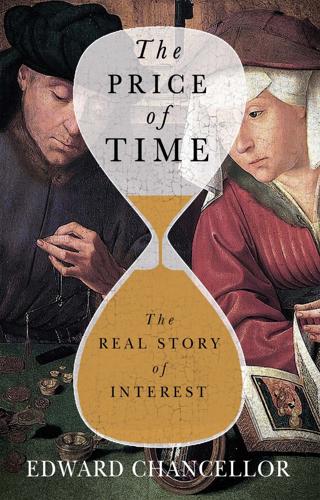
The Price of Time: The Real Story of Interest
by
Edward Chancellor
Published 15 Aug 2022
It is telling that, in a 2010 survey, a large majority of academic economists believed that low rates caused, or at least greatly contributed to, the housing bubble, but most economists specializing in monetary policy continued to side with the Fed’s view.38 If Bernanke, as head of the Federal Reserve, held that the crisis wasn’t a failure of ‘economic science’ but one of economic management (regulation), it was only to be expected that the Fed’s own research team should follow their chief’s lead.39 They occupied an echo chamber in which existing beliefs were reinforced and uncomfortable questions ignored. ‘Bernanke’s Fed,’ concludes historian Philip Mirowski, ‘has evaded suffering any consequences for its intellectual incompetence’ in the lead up to the crisis. Instead of being hounded from office, Bernanke was credited with saving the world from another Great Depression and anointed Time magazine’s ‘Person of the Year’ in 2009. His exercise in denial meant that the Fed learned little from the crisis.
…
Monetary policy errors show up only as disturbances to the price level, ‘without any further consequence’, as Hume put it. The inadequacy of their models meant that nearly every central banker was caught off guard by the subprime crisis. ‘Most economists did not understand the economy’s peculiar path prior to the crisis, and persisted in befuddlement in the aftermath,’ writes Philip Mirowski.4 After the crisis, no intellectual paradigm shift took place. A fixed belief in the veil of money remained firmly in place, a blindfold that obscured the true operations of the economy from those who wore it. This belief explains why central bankers denied responsibility for the collapse in long-term rates after 2008, even as they pushed short-term rates to zero or below and attempted in various ways to manipulate bond yields.fn1 Nor could they admit that their actions might have any lasting impact on the economy’s growth rate: ‘It’s important to recognize … that what monetary policy affects is not the potential rate of growth, long-run rate of growth, but rather the cyclical part,’ said Fed Chairman Bernanke in 2013.5 The lowest interest rates in history and lacklustre economic growth were routinely ascribed by central bankers to secular stagnation.
…
Unconventional monetary policies arrested Wall Street’s collapse. Bondholders were bailed out. Financial insiders with access to the Fed’s emergency lending facilities got to buy up distressed securities at bargain prices with subsidized loans. Despite record losses on Wall Street, billions of dollars in bonuses were distributed. The Fed, writes Philip Mirowski, ‘bestowed upon the banks seemingly permanent options to reward executives and shareholders by capping the downside while permitting an unlimited upside’.fn3 After 2008, another great wealth bubble inflated, larger than either of its recent predecessors. Since the rich owned proportionately more financial assets, they enjoyed most of the spoils as the markets recovered.
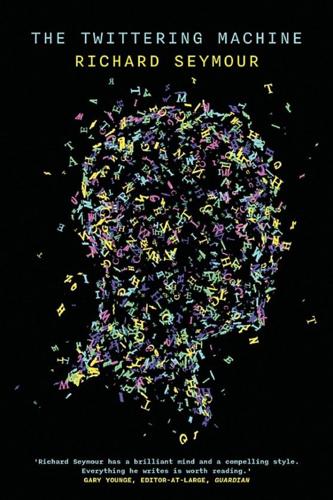
The Twittering Machine
by
Richard Seymour
Published 20 Aug 2019
In a survey of 1,500 scientists . . . Monya Baker, ‘1,500 scientists lift the lid on reproducibility’, Nature, 25 May 2016. On the replication crisis, see Nature’s special online report, ‘Challenges in irreproducible research’, Nature, 18 October 2018. 51. According to the historian of ideas Philip Mirowski . . . Philip Mirowski, Science-Mart: Privatizing American Science, Harvard University Press: Cambridge, MA, 2011. 52. Among the worst examples of this degradation . . . C. G. Begley and L. M. Ellis, ‘Raise standards for preclinical cancer research’, Nature, 483, 2012, pp. 531–3; C. G. Begley, ‘Reproducibility: Six red flags for suspect work’, Nature, 497, 2013, pp. 433–4. 53.
…
The crisis consists of the fact that the results of many scientific studies are impossible to replicate in subsequent tests. In a survey of 1,500 scientists in the journal Nature, 70 per cent of the respondents failed to replicate the findings of another scientist’s experiment.50 Half of them couldn’t even replicate their own findings. According to the historian of ideas Philip Mirowski, one of the main causes of the problem is that science is becoming commodified.51 As it becomes an outsourced research engine for corporations, quality control collapses. A ‘parallel universe of think tanks and shadowy “experts”’ emerges outside of academia, while inside, the state demands policy-oriented research but is increasingly indifferent to quality controls.
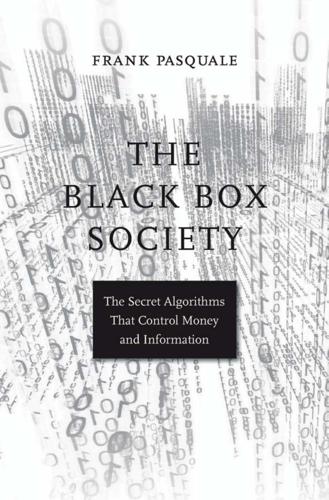
The Black Box Society: The Secret Algorithms That Control Money and Information
by
Frank Pasquale
Published 17 Nov 2014
DeMartino, The Economist’s Oath: On the Need for and Content of Professional Economic Ethics (Oxford, UK: Oxford University Press, 2011); Charles Ferguson, “Larry Summers and the Subversion of Economics,” The Chronicle Review, October 3, 2010; Philip Mirowski and Esther-Mirjam Sent, eds., Science Bought and Sold: Essays in the Economics of Science (Chicago: University of Chicago Press, 2002). 42. See Frederic Filloux, “Google News: The Secret Sauce,” The Guardian, February 25, 2013. 43. Neoliberalism is a complex set of ideas, perhaps best summarized in Philip Mirowski, Never Let a Serious Crisis Go to Waste: How Neoliberalism Survived the Financial Meltdown (London: Verso, 2013), 53– 67. For our purposes, the critical tenet of the neoliberal “thought collective” is that “the market (suitably reengineered and promoted) can always provide solutions to problems seemingly caused by the market in the fi rst place.”
…
Bhidé, A Call for Judgment. 94. MacKinnon, Consent of the Networked; Anupam Chander, “Facebookistan,” North Carolina Law Review 90 (2012): 1807–1844. 304 NOTES TO PAGES 214–218 95. For the strange career of neoliberal approaches to antitrust law, see Robert Van Horn and Philip Mirowski, “Reinventing Monopoly,” in The Road from Mount Pèlerin, ed. Philip Mirowski and Dieter Plehwe (Cambridge, MA: Harvard University Press, 2009), 219 ff. 96. C. Wright Mills, The Power Elite. New ed. (New York: Oxford University Press, 2000). First published 1956. 97. Thomas Piketty, Capital in the Twenty-First Century (Cambridge: Harvard University Press, 2014), 574. 98.
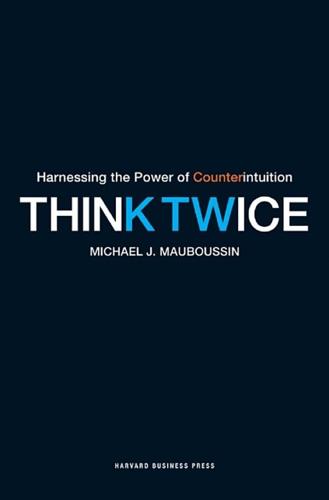
Think Twice: Harnessing the Power of Counterintuition
by
Michael J. Mauboussin
Published 6 Nov 2012
Paul Cootner, an economist at MIT and the editor of the volume, was unconvinced of Mandelbrot’s case. “If [Mandelbrot] is right,” he wrote, “almost all of our statistical tools are obsolete. Almost without exception, past econometric work is meaningless.”17 But Cootner could rest easy, because Mandelbrot’s ideas never penetrated mainstream economics. Philip Mirowski, a historian and philosopher of economic thought at Notre Dame, notes, “The simple historical fact is that [Mandelbrot’s economic ideas] have been by and large ignored, with some few exceptions… which seem to have been subsequently abandoned by their authors.”18 A few years ago, I went to a dinner in New York City that included Mandelbrot.
…
This is also a core theme of Taleb, The Black Swan. See also Benoit Mandelbrot and Richard L. Hudson, The (Mis)Behavior of Markets (New York: Basic Books, 2004). 17. Paul H. Cootner, “Comments on The Variation of Certain Speculative Prices,” in Cootner, The Random Character of Stock Market Prices, 413–418. 18. Philip Mirowski, The Effortless Economy of Science? (Durham, NC: Duke University Press, 2004), 232. 19. Felix Salmon, “Recipe for Disaster: The Formula That Killed Wall Street,” Wired Magazine, March 2009, 74–79, 112.; and MacKenzie, An Engine, Not a Camera, 223 and 233. 20. Stephen Jay Gould, Wonderful Life: The Burgess Shale and the Nature of History (New York: W.W.
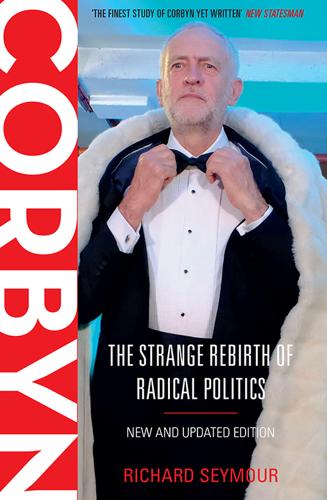
Corbyn
by
Richard Seymour
On the role of neoliberals in the Pinochet dictatorship, see David Harvey, Neoliberalism: A Short History, Oxford: Oxford University Press, 2005, pp. 7–9; Naomi Klein, The Shock Doctrine: The Rise of Disaster Capitalism, New York: Metropolitan Books, 2007, pp. 77–87; Greg Grandin, ‘The Road from Serfdom: Milton Friedman and the Economics of Empire’, Counterpunch, 17 November 2006. And on the underlying assumptions of neoliberal thought with regard to state and economy, see: Philip Mirowski, Never Let a Serious Crisis Go to Waste: How Neoliberalism Survived the Financial Meltdown, London: Verso, 2013; Philip Mirowski, ‘On the Origins (at Chicago) of some Species of Neoliberal Evolutionary Economics’, in Robert van Horn, Philip Mirowski and Thomas A Stapleford, eds., Building Chicago Economics: New Perspectives on the History of America’s Most Powerful Economics Program, Cambridge University Press, 2011. 26James M.

The Politics of Bitcoin: Software as Right-Wing Extremism
by
David Golumbia
Published 25 Sep 2016
Both of these doctrines or dogmas stem from the writings of core right-wing thinkers such as Friedrich August von Hayek, Ludwig von Mises, Milton Friedman, Rothbard, and others, as well as their more recent followers. The most trenchant critic of this work, on whose research my analysis relies in particular, is the economic historian and theorist Philip Mirowski, whose Never Let a Serious Crisis Go to Waste (2014) remains the single most comprehensive account of what he calls the Neoliberal Thought Collective and the nearly identical Mont Pelerin Society (MPS), of which Hayek was the founding president. Mirowski, along with some of his colleagues, has explained with particular cogency how Hayek and others disseminated neoliberal doctrine.
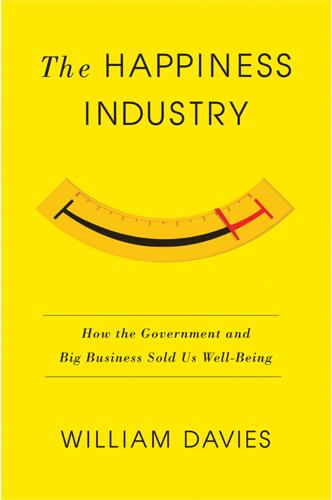
The Happiness Industry: How the Government and Big Business Sold Us Well-Being
by
William Davies
Published 11 May 2015
Ibid., 102. 13Harro Maas, ‘Mechanical Rationality: Jevons and the Making of Economic Man’, Studies in History and Philosophy of Science 30: 4, 1999. 14‘Now the mind of an individual is the balance which makes its own comparisons, and is the final judge of quantities of feeling’, Jevons, The Theory of Political Economy, 84. 15Ibid., 11–12. 16Rosalind Williams, Dream Worlds: Mass Consumption in Late Nineteenth-Century France, Berkeley: University of California Press, 1982. 17Jevons, The Theory of Political Economy, 101. 18Alfred Marshall, Principles of Economics, Basingstoke: Palgrave Macmillan, 2013, 53. 19Jevons, The Theory of Political Economy, 83. 20Quoted in Philip Mirowski, More Heat Than Light: Economics as Social Physics, Physics as Nature’s Economics, Cambridge: Cambridge University Press, 1989, 219. 21See Philip Mirowski, Edgeworth on Chance, Economic Hazard, and Statistics, Lanham, MD: Rowman & Littlefield, 1994. 22David Colander, ‘Retrospectives: Edgeworth’s Hedonimeter and the Quest to Measure Utility’, Journal of Economic Perspectives 21: 2, 2007. 23D.
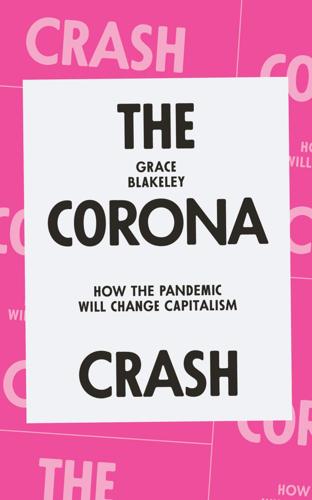
The Corona Crash: How the Pandemic Will Change Capitalism
by
Grace Blakeley
Published 14 Oct 2020
Tom Bottomore, London: Routledge & Kegan Paul, 1981 [1910]. 13 Blakeley, Stolen, ‘Chapter Two: Vulture Capitalism: The Financialisation of the Corporation’. 14 Thomas Philippon, ‘The Economics and Politics of Market Concentration’, NBER Reporter, no. 4, December 2019. 15 Karsten Kohler, Alexander Guschanski and Engelbert Stockhammer, ‘The Impact of Financialisation on the Wage Share: A Theoretical Clarification And Empirical Test’, Cambridge Journal of Economics 43, no. 4 (July 2019). 16 Mimoza Shabani, Judith Tyson, Jan Toporowski and Terry McKinley, ‘The Financial System in the UK’, FESSUD Studies in Financial Systems, no. 14, February 2015. 17 Josh Ryan Collins, Laurie Macfarlane and Toby Lloyd, Rethinking the Economics of Land and Housing, London: Zed Books, 2017. 18 Blakeley, Stolen, ‘Chapter Three: Let Them Eat Houses: The Financialisation of the Household’. 19 Colin Crouch, ‘Privatised Keynesianism: An Unacknowledged Policy Regime’, British Journal of Politics and International Relations 11, no. 3 (August 2009). 20 Adam Tooze, ‘Notes on the Global Condition: Of Bond Vigilantes, Central Bankers and the Crisis, 2008–2017’, 2017, adamtooze.com. 21 Zak Cope, The Wealth of (Some) Nations: Imperialism and the Mechanics of Value Transfer, London: Pluto, 2019. 22 Grace Blakeley, ‘On Borrowed Time: Finance and the UK Current Account Deficit’, Institute for Public Policy Research, Commission on Economic Justice, 2018. 23 Blakeley, Stolen, ‘Chapter One: The Golden Age of Capitalism’. 24 Jeremy Green, ‘Anglo-American Development, the Euromarkets, and the Deeper Origins of Neoliberal Deregulation’, Review of International Studies 42, no. 3 (July 2016): 425–49. 25 Philip Mirowski and Dieter Plehwe, eds, The Road from Mont Pelerin: The Making of the Neoliberal Thought Collective, Cambridge, MA: Harvard University Press, 2009. 26 Grace Blakeley, ‘On Borrowed Time’; Bank of England, ‘North Sea Oil and Gas: Costs and Benefits’, Bank of England Quarterly Statistical Bulletin, March 1982. 27 Office for National Statistics, ‘Changes in the Economy Since the 1970s’, 2019, ons.gov.uk. 28 Cope,The Wealth of (some) Nations. 29 ‘Five facts about the UK service sector’, Office for National Statistics, 29 September 2016. 30 Crouch, ‘Privatised Keynesianism’. 31 ONS, ‘Employees in the UK by Industry: 2018’, Office for National Statistics, 26 September 2019, ons.gov.uk. 32 Blakeley, Stolen. 33 Richard Disney and Guannan Luo, ‘The Right to Buy Public Housing in Britain: A Welfare Analysis’, Journal of Housing Economics 35 (March 2017): 51–68. 34 Collins et al., Rethinking the Economics of Land and Housing. 35 Shabani et al., ‘The Financial System in the UK’. 36 Ibid. 37 Ibid. 38 Thomas Hale, ‘The Bank of England Has a Strange Idea of What QE Achieved’, Financial Times Alphaville, 3 August 2018, ftalphaville.ft.com. 39 Jannes van Loon and Manuel B.
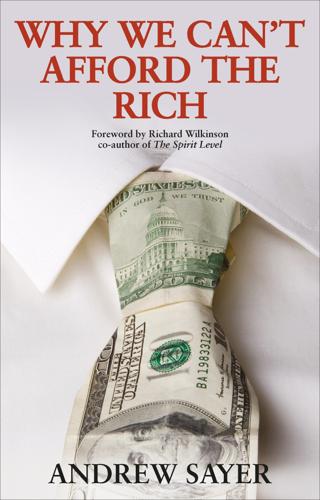
Why We Can't Afford the Rich
by
Andrew Sayer
Published 6 Nov 2014
In this way, governments can avoid blame if things don’t work out at the same time as they not only avoid challenging big business but deliver new customers to them through privatisation. Focusing purely on individual consumers depoliticises things. Although many neoliberal politicians dismiss global warming as fiction, it’s hard to believe that they really believe the vast weight of scientific research is mistaken. Philip Mirowski has researched neoliberal think-tanks and argues that – contrary to appearances, particularly their tendency to deny climate change – neoliberals actually have a strategy for dealing with it. This strategy has three parts: 1. deny climate change;61 2. advocate carbon markets, in which permissions to emit CO2 can be traded; 3. invest in ‘geoengineering’ to weaken and reverse global warming and its effects.
…
Sometimes the term is just used to cover ‘everything that’s been happening recently’, but this misses its specificity and the counter-currents. For those wanting to read more on it, I recommend David Harvey’s (2007) A brief history of neoliberalism, Oxford: Oxford University Press. Best of all, especially in relation to the crisis, is Philip Mirowski’s (2013) Never let a serious crisis go to waste, London: Verso. 27 Sayer, A. (2007) ‘Moral economy as critique’, New Political Economy, 12(2), pp 261–70. Many associate the term ‘moral economy’ with Edward Thompson’s research on regulated markets: (1971) ‘The moral economy of the English crowd in the eighteenth century’, Past & Present, 50, pp 76–136.
…
Also, most such workers are women, and gender discrimination depresses pay too. 40 Hayek, F.A. (1976) ‘“Social” or distributive justice’, in his Law, legislation and liberty, vol 2, p 74. Similarly: ‘the value which a person’s capacities or services have for us and for which he is recompensed has little relation to anything we call moral merit or deserts’: Hayek, F.A. (1960) The constitution of liberty, Chicago: The University of Chicago Press, p 94. 41 Philip Mirowski calls this division between what neoliberals say in private and what they say in public neoliberalism’s ‘double-truth’. Mirowski, P. (2013) Never let a serious crisis go to waste, London: Verso. The quotation from Hayek encapsulates it. 42 Some enlightened employers may try not to favour applicants according to their accent and demeanour and social background, but the applicants have already been made unequal by being brought up in a society of wide economic and social inequalities, so they are usually competing unequally for unequal positions. 43 Wright (2000).
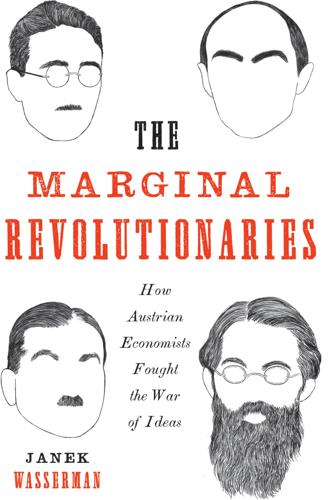
The Marginal Revolutionaries: How Austrian Economists Fought the War of Ideas
by
Janek Wasserman
Published 23 Sep 2019
“Gerschenkron’s Secret: A Research Note.” Critique 40, no. 4 (2012): 553–62. Van Horn, Robert. “Jacob Viner’s Critique of Chicago Neoliberalism.” In Van Horn, Mirowski, and Stapleford, Building Chicago Economics, 279–300. Van Horn, Robert, and Philip Mirowski. “The Rise of the Chicago School of Economics and the Birth of Neoliberalism.” In Mirowski and Plehwe, Road from Mont Pèlerin, 139–79. Van Horn, Robert, Philip Mirowski, and Thomas Stapleford, eds. Building Chicago Economics. New York: Cambridge University Press, 2011. Van Sickle, John. Review of Die Gemeinwirtschaft by Ludwig von Mises. AER 13, no. 3 (1923): 533–36. Vaughn, Karen.
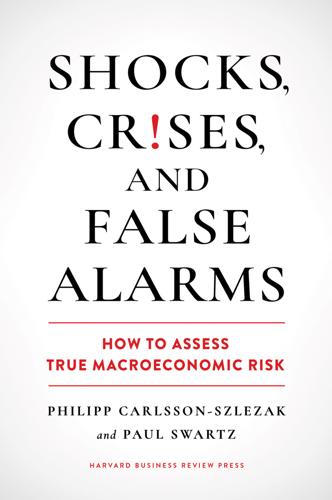
Shocks, Crises, and False Alarms: How to Assess True Macroeconomic Risk
by
Philipp Carlsson-Szlezak
and
Paul Swartz
Published 8 Jul 2024
Modern economics has clearly and irrefutably exposed the fallaciousness of this statement. Those economists who want to substitute “quantitative economics” for what they call “qualitative economics” are utterly mistaken. There are, in the field of economics, no constant relations, and consequently no measurement is possible. 5. The term “physics envy” was coined by Philip Mirowski; see Philip Mirowski, “Do Economists Suffer from Physics Envy?” Finnish Economic Papers 5, no. 1 (Spring 1992): 61–68. 6. “… even more fundamentally, the Standard Models left out both banks and the shadow banking system, central to the determination of the flow of credit, which in turn is central to the determination of aggregate demand.”
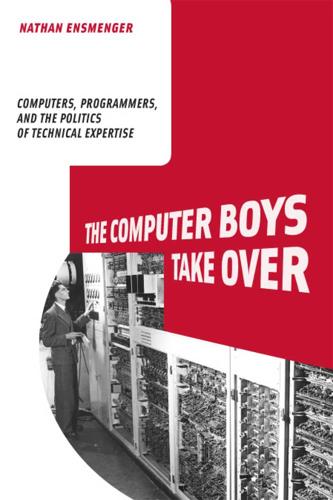
The Computer Boys Take Over: Computers, Programmers, and the Politics of Technical Expertise
by
Nathan L. Ensmenger
Published 31 Jul 2010
And although the programmer being referred to here was obviously a logistical or mathematical planner rather than a computer programmer, it was also clear that this new elite would be intimately familiar with computer technology and software design.68 Although “Management in the 1980s” is most generally cited for its role in introducing the term information technology, it is best understood in the context of a more general shift in management practices in the decades after the Second World War. The war had produced a series of “managerial sciences”—including operations research, game theory, and systems analysis—all of which promised a more mathematical and technologically oriented approach to business management. As Philip Mirowski and others have suggested, these nascent “cyborg” sciences were deeply connected to the emerging technology of electronic computing.69 Not only did many of these new techniques require a significant amount of computing power in and of themselves but they relied on the electronic computer as a central metaphor for understanding the nature of the modern bureaucratic organization.70 Many of the most visionary proposals for the use of the electronic computer in management frequently rode into the corporation on the back of this new breed of expert consultants.
…
Watts, Business Experience with Electronic Computers: A Synthesis of What Has Been Learned from Electronic Data Processing Installations (New York: Price Waterhouse, 1959), 81–83. 66. Felix Kaufman, “EDP and the Disenchanted,” California Management Review 1, no. 4 (1959): 67. 67. Harold Leavitt and Thomas Whisler, “Management in the 1980s,” Harvard Management Review 36, no. 6 (1958): 41–48. 68. Ibid., 44. 69. Philip Mirowski, Machine Dreams: Economics Becomes a Cyborg Science (Cambridge: Cambridge University Press, 2002). 70. Herbert Alexander Simon, Administrative Behavior: A Study of Decision-Making Processes in Administrative Organization (New York: Macmillan, 1947). 71. Herbert Alexander Simon, The New Science of Management Decision (New York: Harper, 1960), 22. 72.
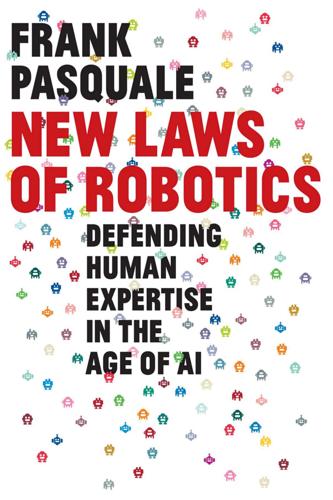
New Laws of Robotics: Defending Human Expertise in the Age of AI
by
Frank Pasquale
Published 14 May 2020
Will Davies, “Elite Power under Advanced Neoliberalism,” Theory, Culture and Society 34, nos. 5–6 (2017): 233 (italics in original). 71. I believe this integration of democratic and expertocratic values may be the key to resolving the divide between “diggers” and “levelers” in Science and Technology Studies, trenchantly developed by Philip Mirowski in a recent draft. Philip Mirowski, “Democracy, Expertise and the Post-truth Era: An Inquiry into the Contemporary Politics of STS,” (working paper, version 1.1, April 2020), https://www.academia.edu/42682483/Democracy_Expertise_and_the_Post-Truth_Era_An_Inquiry_into_the_Contemporary_Politics_of_STS. 72. Hubert L.
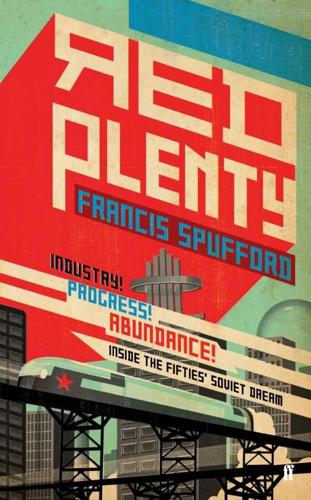
Red Plenty
by
Francis Spufford
Published 1 Jan 2007
Heilbroner, The Worldly Philosophers: The Lives, Times and Ideas of the Great Economic Thinkers, 4th edn (New York: Simon and Schuster, 1971). For a much more intricate and specific (but still narrative) study of the ambitions that seemed to be enabled by economics’ encounter with information technology in the post-war twentieth century, see Philip Mirowski, Machine Dreams: Economics Becomes a Cyborg Science (Cambridge: CUP, 2002). 6 Value shone in material things once labour had made them useful: the ‘labour theory of value’, as originated by Adam Smith and passed via David Ricardo to Marx. Soviet economists tended to be aware of pre-Marxian classical economics, at least in the form of citations and summaries, but not the post-Marxian development of it.
…
Heilbroner, The Worldly Philosophers: The Lives, Times and Ideas of the Great Economic Thinkers, 4th edn (New York: Simon and Schuster, 1971). For a much more intricate and specific (but still narrative) study of the ambitions that seemed to be enabled by economics’ encounter with information technology in the post-war twentieth century, see Philip Mirowski, Machine Dreams: Economics Becomes a Cyborg Science (Cambridge: CUP, 2002). 6 Value shone in material things once labour had made them useful: the ‘labour theory of value’, as originated by Adam Smith and passed via David Ricardo to Marx. Soviet economists tended to be aware of pre-Marxian classical economics, at least in the form of citations and summaries, but not the post-Marxian development of it.
…
Available at www.sovietcomputing.com Terry Dean Martin, The Affirmative Action Empire: Nations and Nationalism in the Soviet Union, 1923–1939 (Ithaca NY: Cornell University Press, 2001) Frank J. Miller, Folklore for Stalin: Russian Folklore and Pseudo-folklore of the Stalin Era (Armonk: M.E.Sharpe, Inc., 1990) Philip Mirowski, Machine Dreams: Economics Becomes a Cyborg Science (Cambridge: CUP, 2002) Ludwig von Mises, Socialism, 1922; trans. from the German by J. Kahane (Indianapolis: Liberty Fund, 1981) Nikolai Nekrasov (‘Nicholas Nekrassov’), Who Can Be Happy and Free in Russia?, trans. Juliet M Soskice (London, 1917) V.
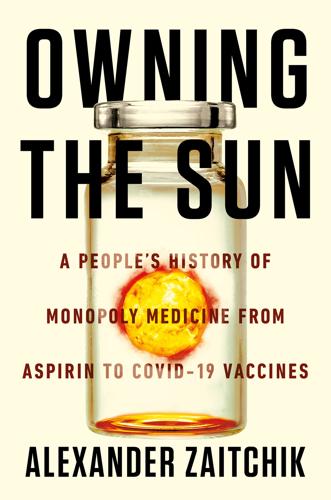
Owning the Sun
by
Alexander Zaitchik
Published 7 Jan 2022
A good article on the ideology’s enduring impact on access to medicines is Amy Kapczynski, “The Right to Medicines in an Age of Neoliberalism” (2019). The legacy of the Chicago School’s focus on patents and antirust revisionism is assessed in two volumes of essays: Dieter Plehwe, Quinn Slobodian, and Philip Mirowski, Nine Lives of Neoliberalism (2020), and Robert Pitofsky, How the Chicago School Overshot the Mark: The Effect of Conservative Economic Analysis on U.S. Antitrust (2008). THE MAKING OF A MONSTER The prescription drug boom of the 1950s in many ways created the drug industry we know today—its marketing techniques, its symbiotic financial relationship with physicians and medical journals, its reactionary alliance with organized medicine.
…
For critical perspectives on Bayh-Dole’s impact on the culture of academic research, see Rebecca Eisenberg, “Universities: The Fallen Angels of Bayh-Dole?” (2018); David Dickson, The New Politics of Science (1988); Daniel S. Greenberg, Science, Money, and Politics: Political Triumph and Ethical Erosion (2001); and Philip Mirowski, Science-Mart: Privatizing American Science (2011). Clifford M. Gross and Joseph P. Allen’s Technology Transfer for Entrepreneurs: A Guide to Commercializing Federal Laboratory Innovations (2003) provides a more honest picture of Bayh-Dole than any academic work ever could. THE G77, THE WHO, AND THE WTO For good general overviews of the UN’s founding and early years, and the sharpening of a north-south divide, see Paul Kennedy, The Parliament of Man: The Past, Present, and Future of the United Nations (2006); and Mark Mazower, Governing the World: The History of an Idea (2012).
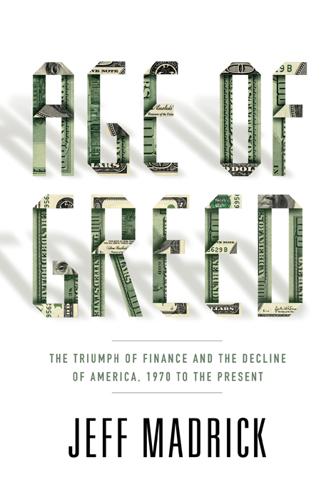
Age of Greed: The Triumph of Finance and the Decline of America, 1970 to the Present
by
Jeff Madrick
Published 11 Jun 2012
Talese, 2009). 4 “MONEY WAS ALWAYS A CONCERN”: Friedman gives an account in the book he co-authored with his wife, Rose, Two Lucky People: Memoirs (Chicago: University of Chicago Press, 1998), pp. 20–32. 5 YET THE FAMILY WAS ABLE TO BUY: Author interview with Milton Friedman, November 2003. 6 “FANATICALLY RELIGIOUS”: Ibid. 7 IF HIS FATHER HAD ANY POLITICAL INFLUENCE: Ibid. 8 “SAVE FOR MY PARENTS”: Friedman and Friedman, Two Lucky People, p. 30 9 FRIEDMAN THOUGHT MARSHALL’S MODEL: Friedman’s early devotion to Marshall is evident in an essay, “Marshall’s Demand Curve,” in his book Essays in Positive Economics (Chicago: University of Chicago Press, 1953). 10 “LIKE HIS MENTOR”: Friedman and Friedman, Two Lucky People, p. 32. 11 JONES WAS THE REASON: Ibid., p. 33. 12 IT EMPHASIZED, AS SIMONS PUT IT: Henry Simons private papers, cited by Rob Van Horn and Philip Mirowski, “The Rise of the Chicago School of Economics and the Birth of Neoliberalism,” in The Road from Mont Pelerin: The Making of the Neoliberal Thought Collective, ed. Philip Mirowski and Dieter Plehwe (Cambridge, Mass.: Harvard University Press, 2009), p. 145. 13 THIS APPROACH IN A TIME: H. L. Miller, “On the Chicago School of Economics,” Journal of Political Economy 70 (February 1962): 64–69. 14 “MY TEACHERS REGARDED THE DEPRESSION”: Milton Friedman, “Comments on the Critics,” Journal of Political Economy (September-October 1972): 906–50. 15 “SIMONS FOR EXAMPLE DID NOT EQUATE”: Miller “On the Chicago School of Economics,” p. 70. 16 “ONCE A DEFLATION HAS GOTTEN UNDER WAY”: Henry Simons, Personal Income and Taxation: The Definition of Income as a Problem of Fiscal Policy (Chicago: University of Chicago Press, 1938), p. 222, cited by Esteban Pérez Caldentey and Matías Vernengo, “Fiscal Policy for the Global Economic Crisis,” Challenge, May-June 2001. 17 HE WAS, IN FACT, A MILD PROPONENT: Author interview with Milton Friedman, November 2003; Lanny Ebenstein, Milton Friedman: A Biography (London: Macmillan Palgrave, 2007). 18 FEW INVITATIONS CAME HIS WAY: Friedman did get an offer from the University of Wisconsin, but became embroiled in what he said was an anti-Semitic battle between the economics department and the business school, and he had to leave.
…
Knight was also more sympathetic to the progressive writings of John Kenneth Galbraith than his younger associates. “Colleagues spoof at [Galbraith], but I find some truth in what he says, perhaps as much as in their position,” he wrote to the British economist Lionel Robbins, referring in particular to Friedman. As economic historians Rob Van Horn and Philip Mirowski make clear, claims that the “neo-liberalism” of Friedman was a pure outgrowth of the highly respected Chicago pioneers like Knight and Simons were misleading. Once securely at the University of Chicago, Friedman became a prolific researcher and writer, much of his work based on a Marshallian framework.
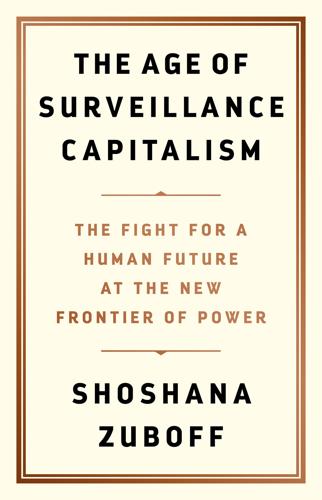
The Age of Surveillance Capitalism
by
Shoshana Zuboff
Published 15 Jan 2019
Flew, “Michel Foucault’s The Birth of Biopolitics and Contemporary Neo-Liberalism Debates,” Thesis Eleven 108, no. 1 (2012): 44–65, https://doi.org/10.1177/0725513611421481; Philip Mirowski, Never Let a Serious Crisis Go to Waste: How Neoliberalism Survived the Financial Meltdown (London: Verso, 2013); Gérard Duménil and Dominique Lévy, The Crisis of Neoliberalism (Cambridge, MA: Harvard University Press, 2013); Pierre Dardot and Christian Laval, The New Way of the World: On Neoliberal Society (Brooklyn: Verso, 2013); António Ferreira, “The Politics of Austerity as Politics of Law,” Oñati Socio-Legal Series 6, no. 3 (2016): 496–519; David M. Kotz, The Rise and Fall of Neoliberal Capitalism (Cambridge, MA: Harvard University Press, 2017); Philip Mirowski and Dieter Plehwe, eds., The Road from Mont Pelerin: The Making of the Neoliberal Thought Collective (Cambridge, MA: Harvard University Press, 2009); Wendy Brown, Undoing the Demos: Neoliberalism’s Stealth Revolution (New York: Zone, 2015); David Jacobs and Lindsey Myers, “Union Strength, Neoliberalism, and Inequality: Contingent Political Analyses of US Income Differences Since 1950,” American Sociological Review 79 (2014): 752–74; Angus Burgin, The Great Persuasion: Reinventing Free Markets Since the Depression (Cambridge, MA: Harvard University Press, 2012); Greta R.
…
For a wonderful collection of essays on this subject, see Steve Fraser and Gary Gerstle, eds., The Rise and Fall of the New Deal Order 1930–1980 (Princeton, NJ: Princeton University Press, 1989). 38. Alan Brinkley, Liberalism and Its Discontents (Cambridge, MA: Harvard University Press, 2000). 39. Short, “The Paranoid Style,” 44–46. 40. Short, 52–53. Economic historian Philip Mirowski summarizes the “metatheses” that since the 1980s helped to constitute neoliberalism as a loose “paradigm,” despite its amorphous, multifaceted, and sometimes contradictory theories and practices. Among these, several became essential shelter for the surveillance capitalists’ bold actions, secret operations, and rhetorical misdirection: (1) democracy was to be constrained in favor of actively reconstructing the state as the agent of a stable market society; (2) the entrepreneur and the corporation were conflated, enshrining “corporate personhood,” rather than the rights of citizens, as the focus of legal protections; (3) freedom was defined negatively, as “freedom from” interference in the natural laws of competition, and all control was understood as coercive, except for market control; and (4) inequality of wealth and rights was accepted and even celebrated as a necessary feature of a successful market system and a force for progress.
…
Among these, several became essential shelter for the surveillance capitalists’ bold actions, secret operations, and rhetorical misdirection: (1) democracy was to be constrained in favor of actively reconstructing the state as the agent of a stable market society; (2) the entrepreneur and the corporation were conflated, enshrining “corporate personhood,” rather than the rights of citizens, as the focus of legal protections; (3) freedom was defined negatively, as “freedom from” interference in the natural laws of competition, and all control was understood as coercive, except for market control; and (4) inequality of wealth and rights was accepted and even celebrated as a necessary feature of a successful market system and a force for progress. Later, surveillance capitalism’s success, its aggressive rhetoric, and its leaders’ willingness to fight every challenge, both in the courts and in the court of public opinion, further cemented these guiding principles in US politics, economic policies, and regulatory approaches. See Philip Mirowski, Never Let a Serious Crisis Go to Waste: How Neoliberalism Survived the Financial Meltdown (London: Verso, 2013). See also Wendy Brown, Undoing the Demos: Neoliberalism’s Stealth Revolution (New York: Zone Books, 2015); David M. Kotz, The Rise and Fall of Neoliberal Capitalism (Cambridge, MA: Harvard University Press, 2015), 166–75. 41.
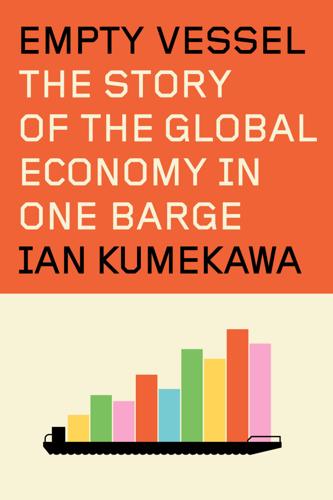
Empty Vessel: The Story of the Global Economy in One Barge
by
Ian Kumekawa
Published 6 May 2025
BACK TO NOTE REFERENCE 21 See Hannah Appel, The Licit Life of Capitalism: US Oil in Equatorial Guinea (Durham: Duke University Press, 2019); Omolade Adunbi, Enclaves of Exception: Special Economic Zones and Extractive Practices in Nigeria (Bloomington: Indiana University Press, 2022). BACK TO NOTE REFERENCE 22 Philip Mirowski, “Neoliberalism: The Movement That Dare Not Speak Its Name,” American Affairs 2, no. 1 (Spring 2018): 118–41. Bjarke Saerlund Risager, “Neoliberalism Is a Political Project: An Interview with David Harvey,” Jacobin, July 23, 2016, www.jacobinmag.com. See also David Harvey, A Brief History of Neoliberalism (Oxford: Oxford University Press, 2007); Philip Mirowski and Dieter Plehwe, eds., The Road from Mont Pèlerin: The Making of the Neoliberal Thought Collective, rev. ed. (Cambridge: Harvard University Press, 2015); Will Davies, The Limits of Neoliberalism: Authority, Sovereignty, and the Logic of Competition (London: Sage, 2014).
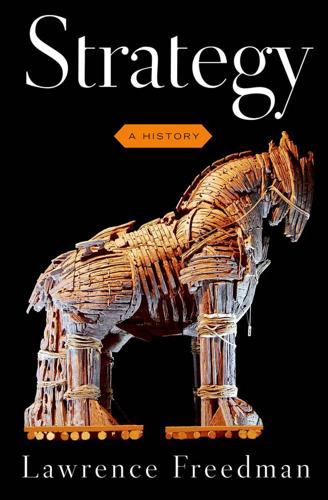
Strategy: A History
by
Lawrence Freedman
Published 31 Oct 2013
It is hard to overstate the importance of RAND, especially during its early years, in transforming established patterns of thought not only in the military sphere but throughout the social sciences. The resources and tools it had available, including the most advanced computers of the day, provided it with a capacity to innovate, which it did with a remarkable sense of mission and confidence. The new universe that was explored at RAND was simulated as much as observed. Philip Mirowski describes what he calls the “Cyborg sciences.” These reflected the new interactions between men and machines. They broke down the distinctions between nature and society, as models of one began to resemble the other, and between “reality” and simulacra. The Monte Carlo simulations adopted for dealing with uncertainty in data during the Manhattan Project, for example, opened up a range of possible experiments to explore the logic of complex systems, discerning ways through uncertainty and forms of order in chaos.11 RAND analysts saw these new methods as supplanting rather than supplementing traditional patterns of thought.
…
This effort gained credibility because of the very special issues posed by nuclear weapons. The effort transformed thinking about not only strategy but also economics because it demonstrated the possibilities opened up by powerful computing capabilities for modeling all forms of human activity. Philip Mirowski has written of the “Cyborg sciences,” which developed along with computing, reflecting novel interactions between men and machines. They broke down the distinctions between nature and society, as models of one began to resemble the other, and between “reality” and simulacra. The Monte Carlo simulations adopted during the wartime atomic bomb project for dealing with uncertainty in data, for example, opened up a range of possible experiments to explore the logic of complex systems, discerning ways through uncertainty and forms of order in chaos.1 RAND analysts saw them as supplanting rather than supplementing traditional patterns of thought.
…
Paul Kennedy, Engineers of Victory: The Problem Solvers Who Turned the Tide in the Second World War (London: Allen Lane, 2013). 10. Sharon Ghamari-Tabrizi, “Simulating the Unthinkable: Gaming Future War in the 1950s and 1960s,” Social Studies of Science 30, no. 2 (April 2000): 169, 170. 11. Philip Mirowski, Machine Dreams: Economics Becomes Cyborg Science (Cambridge: Cambridge University Press, 2002), 12–17. 12. Hedley Bull, The Control of the Arms Race (London: Weidenfeld & Nicolson, 1961), 48. 13. Hedley Bull, “Strategic Studies and Its Critics,” World Politics 20, no. 4 (July 1968): 593–605. 14.
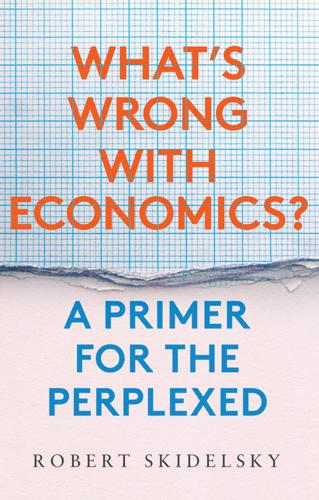
What's Wrong With Economics: A Primer for the Perplexed
by
Robert Skidelsky
Published 3 Mar 2020
Post-modernist literary criticism ‘deconstructs’ the ‘text’ by shifting attention from the truth of what is being asserted to the means by which people are persuaded of its truth. From this perspective, economic modelling is a persuasive undertaking: it does not aim to discover truth, it tries to persuade people of the truth of its own ‘text’. All reality is ‘socially constructed’. Philip Mirowski carries the argument further by saying that natural sciences, too, are built on persuasive utterance. There is a fundamental gap between our thought and reality which can only be bridged by metaphor, simile, analogy. Logical proofs are part of the persuasive machinery.22 There are three valuable implications of this approach.
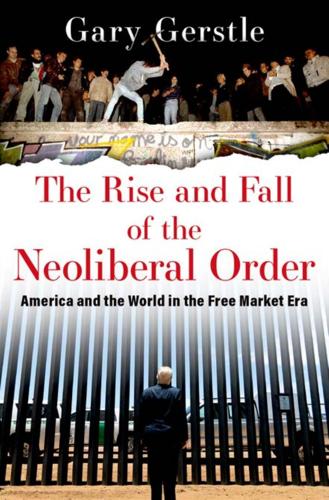
The Rise and Fall of the Neoliberal Order: America and the World in the Free Market Era
by
Gary Gerstle
Published 14 Oct 2022
Graham Burchell (2004; New York: Picador, 2008); David Harvey, A Brief History of Neoliberalism (New York: Oxford University Press, 2005); Jamie Peck, Constructions of Neoliberal Reason (New York: Oxford University Press, 2010); Wendy Brown, Undoing the Demos: Neoliberalism’s Stealth Revolution (New York: Zone Books, 2015); Melinda Cooper, Family Values: Between Neoliberalism and the New Social Conservatism (New York: Zone Books, 2017); Monica Prasad, The Politics of Free Markets: The Rise of Neoliberal Economic Policies in Britain, France, Germany, and the United States (Chicago, IL: University of Chicago Press, 2006); Monica Prasad, Starving the Beast: Ronald Reagan and the Tax Cut Revolution (New York: Russell Sage Foundation, 2018); Greta R. Krippner, Capitalizing on Crisis: The Political Origins of the Rise of Finance (Cambridge, MA: Harvard University Press, 2012); Mark Blyth, Austerity: The History of a Dangerous Idea (New York: Oxford University Press, 2013); Philip Mirowski and Dieter Plehwe, eds., The Road from Mont Pelerin: The Making of the Neoliberal Thought Collective (Cambridge, MA: Harvard University Press, 2009); Loïc Wacquant: Punishing the Poor: The Neoliberal Government of Social Insecurity (Durham, NC: Duke University Press, 2009); Davies, The Limits of Neoliberalism; Pierre Dardot and Christian Laval, The New Way of the World: On NeoLiberal Society, trans.
…
Vogel, Deng Xiaoping and the Transformation of China (Cambridge, MA: Harvard University Press, 2011); Perry Anderson, “Two Revolutions,” New Left Review 61 (January–February 2010), https://newleftreview.org/issues/ii61/articles/perry-anderson-two-revolutions, accessed July 10, 2021. 47.On the idea of free enterprise and its place in American political and popular thought, see Lawrence Glickman, Free Enterprise: An American History (New Haven, CT: Yale University Press, 2019). Chapter 3 1.The phrase “thought collective” to describe the aspirations of the Mont Pelerin Society appears in Philip Mirowski and Dieter Plehwe, eds., The Road from Mont Pelerin: The Making of the Neoliberal Thought Collective (Cambridge, MA: Harvard University Press, 2009). On the origins of the term itself, see Ludwick Fleck, Genesis and Development of a Scientific Fact, Thaddeus J. Trenn and Robert K. Merton, eds., trans.
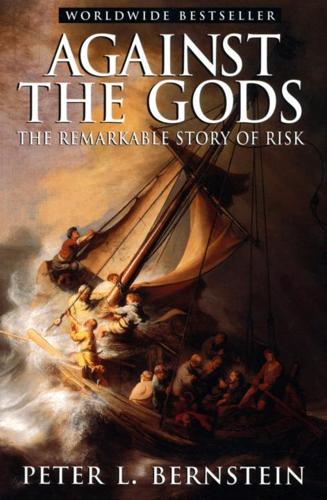
Against the Gods: The Remarkable Story of Risk
by
Peter L. Bernstein
Published 23 Aug 1996
This `can get' [the winnings he can expect] is, of course, presumed to be a minimum; he may get more if others make mistakes (behave irrationall y)."19 This stipulation has posed a major problem for critics, including distinguished behavioral psychologists like Daniel Ellsberg and Richard Thaler, whom we will meet later. In a highly critical paper published in 1991, the historian Philip Mirowski asserted, "All is not well in the House of Game Theory-in every dreamhouse a heartache-and signs of pathology can no longer be ignored."20 He cites criticisms by Nobel Prize winners Henry Simon, Kenneth Arrow, and Paul Samuelson. He claims that game theory would never have amounted to anything had von Neumann not sold it to the military; he even goes so far as to speculate, "Some laid the blame for the escalation of nuclear weaponry directly at the door of game theory."21 Indeed, Mirowski claims that Morgenstern was a "godsend" to von Neumann because he proposed economists as an audience for game theory when no one else was interested.
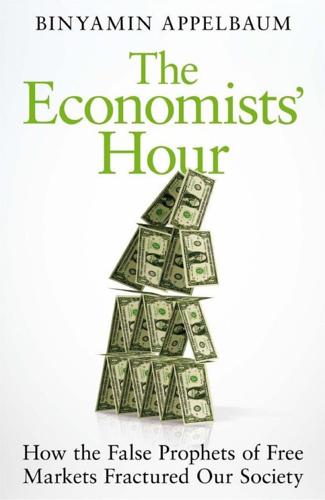
The Economists' Hour: How the False Prophets of Free Markets Fractured Our Society
by
Binyamin Appelbaum
Published 4 Sep 2019
See Robert Van Horn, “The Coming of Age of a Reformer Skeptic (1914– 1924),” History of Political Economy 42, no. 4 (2010): 601–30. 35. Director was not the first economist on the Chicago law school faculty. He took the place of Henry Simons, who played a formative role in the careers of Director, Friedman, and Stigler. See Rob Van Horn and Philip Mirowski, “The Rise of the Chicago School of Economics and the Birth of Neoliberalism,” in The Road from Mont Pèlerin, ed. Philip Mirowski and Dieter Plehwe (Cambridge: Harvard University Press, 2009), 155. 36. Edmund W. Kitch, “The Fire of Truth: A Remembrance of Law and Economics at Chicago, 1932–1970,” Journal of Law and Economics 26, no. 1. Coase’s comments are particularly interesting because his 1961 paper on transaction costs is often identified as the beginning of “law and economics” analysis.
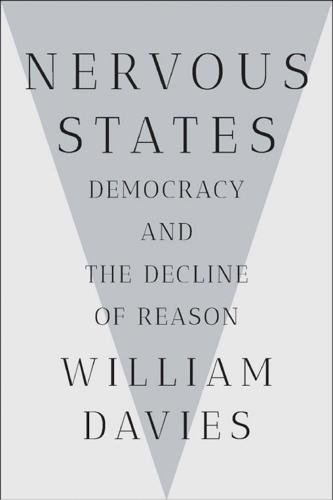
Nervous States: Democracy and the Decline of Reason
by
William Davies
Published 26 Feb 2019
The election of Barack Obama in 2008, with plans to rescue the financial system and provide social health insurance, was the catalyst for fearsome mobilization of economic and intellectual muscle, fueled by libertarian ideology. Whether Mises won or lost the “socialist calculation debate” is not really the point. What was more important was that, in emphasizing the problem of rapid calculation, he set the terms on which the debate took place. In doing so, as the historian of economics Philip Mirowski has shown, he established the template for how mainstream economics would develop over the second half of the twentieth century, especially in the United States.12 Following Mises’ critique of Neurath, economists increasingly came to view their subject matter in terms of information and to understand markets as information processors.
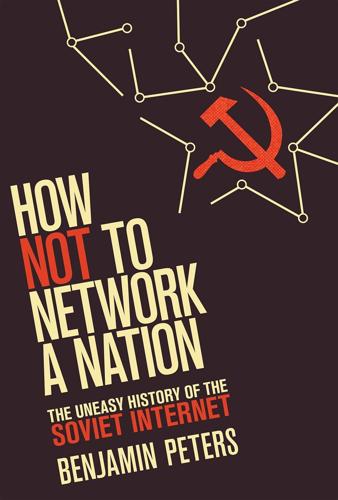
How Not to Network a Nation: The Uneasy History of the Soviet Internet (Information Policy)
by
Benjamin Peters
Published 2 Jun 2016
Katherine Hayles, How We Became Posthuman: Virtual Bodies in Cybernetics, Literature, and Informatics (Chicago: University of Chicago Press, 1999); Jean-Pierre Dupuy, The Mechanization of the Mind: The Origins of Cognitive Science, trans. M. B. DeBevoise (Princeton: Princeton University Press, 2000; Cambridge: MIT Press, 2009); John Johnston, The Allure of Machinic Life: Cybernetics, Artificial Life, and the New AI (Cambridge: MIT Press, 2008); Philip Mirowski, Machine Dreams: Economics Becomes a Cyborg Science (New York: Cambridge University Press, 2001); Orit Halpern, “Dreams for Our Perceptual Present: Archives, Interfaces, and Networks in Cybernetics,” Configurations 13 (2007): 283–319; Stuart Umpleby, “A History of the Cybernetics Movement in the United States,” Journal of the Washington Academy of Sciences 91 (2005): 54–66; Bernard Geoghegan, “The Historiographic Conceptualization of Information: A Critical Survey,” IEEE Annals of the History of Computing 30 (2008): 66–81.For more on cybernetics in the Soviet Union, see Slava Gerovitch, From Newspeak to Cyberspeak: A History of Soviet Cybernetics (Cambridge: MIT Press, 2002); David Holloway, “Innovation in Science: The Case of Cybernetics in the Soviet Union,” Science Studies 4 (1974): 299–337; and David Mindell, Jerome Segal, and Slava Gerovitch, “From Communications Engineering to Communications Science: Cybernetics and Information Theory in the United States, France, and the Soviet Union,” in Science and Ideology: A Comparative History, ed.
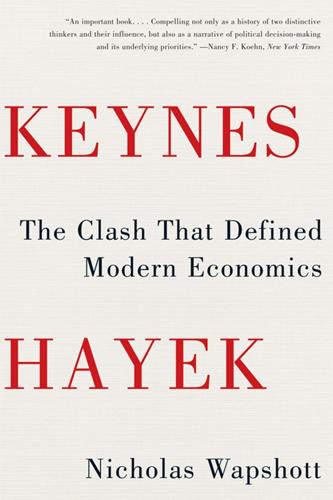
Keynes Hayek: The Clash That Defined Modern Economics
by
Nicholas Wapshott
Published 10 Oct 2011
Klein (University of Chicago Press, Chicago, 1992), p. 191. 11 Raymond-Claude-Ferdinand Aron (1905–83), French sociologist and social scientist, and friend of Jean-Paul Sartre. 12 Michael Polanyi, born Polányi Mihály (1891–1976), Hungarian-born English economist, chemist, and philosopher of science who fled Nazi Germany in 1933 to avoid Jewish persecution. 13 Wilhelm Röpke (1899–1966), the German economist whose ideas about the need to temper the depredations of the free market with “economic humanism” led to him help establish the highly successful postwar German social-market economy that underpinned the “German miracle.” 14 Now the Hôtel Mirador. 15 Albert Hunold (1899–1981). 16 Philip Mirowski and Dieter Plehwe, The Road from Mont Pèlerin: The Making of the Neoliberal Thought Collective (Harvard University Press, Cambridge, Mass., 2009), p. 15. 17 George H. Nash (1945– ), American historian, authority on Herbert Hoover, and author of The Conservative Intellectual Movement in America since 1945 (Basic Books, New York, 1976). 18 Nash, Conservative Intellectual Movement in America, p. 26. 19 George Joseph Stigler (1911–91) who, after researching for the Manhattan Project, became a leading member of the University of Chicago School of Economics and protégé of Frank Knight, who won a Nobel Prize for economics in 1982. 20 John Jewkes (1902–88), professor of economic organization at Merton College, Oxford. 21 Sir Karl Raimund Popper (1902–94), former Marxist Viennese-born British scientific philosopher and advocate of the hypercritical liberal democratic tradition that forms the “open society.” 22 Dame (Cicely) Veronica “C.
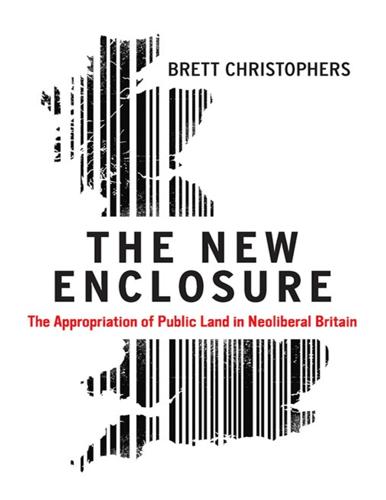
The New Enclosure: The Appropriation of Public Land in Neoliberal Britain
by
Brett Christophers
Published 6 Nov 2018
And one such criterion, maybe even the most important one, concerns the availability of information. One of Margaret Thatcher’s great inspirations for her privatization agenda was, of course, the Austrian economist Friedrich Hayek. For Hayek, market-based allocation was infinitely superior to state-based allocation because the market was, in Philip Mirowski’s words, ‘an information processor more powerful than any human brain’.2 But clearly a market cannot effectively process relevant information about the commodities circulating in that market if such information is not visible. For markets to be efficient, they must be information-rich – information must be freely available to all market participants.
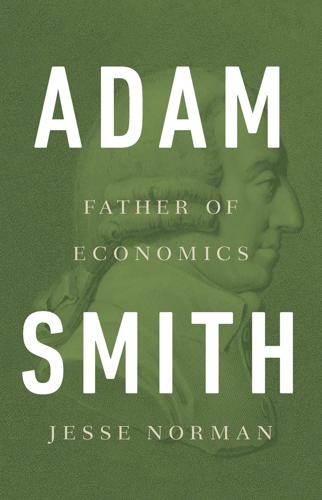
Adam Smith: Father of Economics
by
Jesse Norman
Published 30 Jun 2018
Jevons, The Theory of Political Economy, Macmillan 1888, Ch. 4 ‘Higgling’: see WN I.v.4; for Edgeworth’s overall critique of Walras, see his ‘Review of Léon Walras, Éléments d’économie politique pure’, Nature, 40.1036, September 1925 Transformation of political economy into economics: although Alfred Marshall is often credited with the shift in name, it is worth noting that he and Mary Paley Marshall had already scouted the change eleven years earlier, in their book The Economics of Industry of 1879 Effect of mathematical and physical models on economics: see Philip Mirowski, More Heat than Light, Cambridge University Press 1989 Politics as epiphenomenon: the exact relations between politics and economics in Marx’s thought remain a matter of scholarly debate. In the words of Ralph Miliband, ‘Marx and Engels explicitly rejected any rigid and mechanistic notion of “determination”… But one must not protest too much.
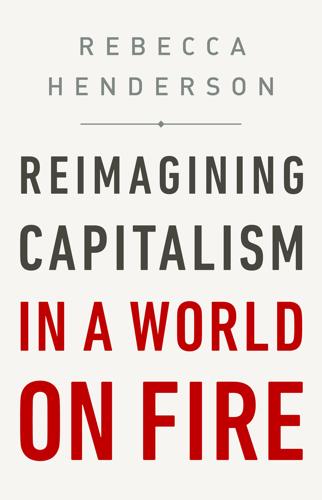
Reimagining Capitalism in a World on Fire
by
Rebecca Henderson
Published 27 Apr 2020
“Inaugural Addresses of the Presidents of the United States: Ronald Reagan,” Avalon Project—Documents in Law, History and Diplomacy, https://avalon.law.yale.edu/20th_century/reagan1.asp. 14. A. Winston, “Where the GOP’s Tax Extremism Comes From,” [online] 2017, accessed Oct. 18, 2019, https://medium.com/@AndrewWinston/where-the-gops-tax-extremism-comes-from-90eb10e38b1c. 15. “Edelman Trust Barometer Global Report” (2019), https://news.gallup.com/reports/199961/7.aspx. 16. Philip Mirowski and Deiter Piehwe, The Road from Mont Pelerin: The Making of the Neoliberal Thought Collective (Cambridge, MA: Harvard University Press, 2009). 17. Theda Skocpol and Alexander Hertel-Fernandez, “The Koch Network and Republican Party Extremism,” Perspectives on Politics 14, no. 3 (2016): 681–699. 18.
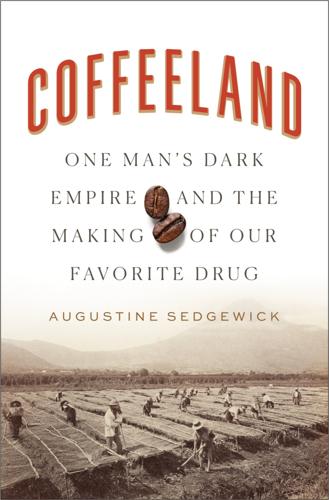
Coffeeland: One Man's Dark Empire and the Making of Our Favorite Drug
by
Augustine Sedgewick
Published 6 Apr 2020
Kemmerer Papers, Public Policy Papers, Department of Rare Books and Special Collections, Princeton University Library. 10. See Drake, Money Doctor. 11. Rosenberg, Financial Missionaries, 102–5. 12. See, for example, Drake, Money Doctor. 13. For example, Douglas Vickers, Economics and Ethics: An Introduction to Theory, Institutions, and Policy (Westport, CT: Prager, 1997), 5–8. 14. Philip Mirowski, More Heat than Light: Economics as Social Physics, Physics as Nature’s Economics (New York: Cambridge University Press, 1989), 193–275. 15. Roger E. Backhouse, The Ordinary Business of Life: A History of Economics from the Ancient World to the Twenty-First Century (Princeton, NJ: Princeton University Press, 2004), 4. 16.
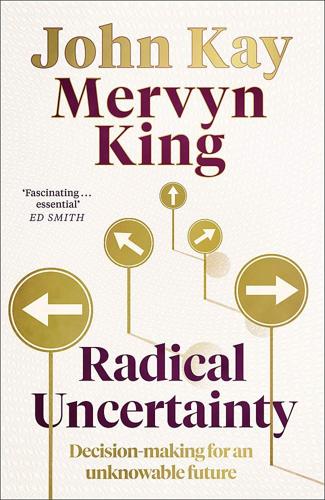
Radical Uncertainty: Decision-Making for an Unknowable Future
by
Mervyn King
and
John Kay
Published 5 Mar 2020
An accomplished dentist is one who identifies the source of the patient’s problem – ‘What is going on here?’ – and draws effectively on old and new techniques from that store of knowledge to relieve that problem. A great contributor to dentistry, like Brånemark, develops a new technique of wide practical application. Economics demands data The American historian of economic thought Philip Mirowski popularised the term ‘physics envy’ to describe the longing of many economists to emulate Max Planck rather than Keynes’ dentist. And while Keynes’ description of Planck’s deductive reasoning is accurate, the knowledge of the solar system which lies behind NASA’s success originates not in axiomatic reasoning but in the careful and extensive observation of the planets undertaken in the sixteenth century by the Danish nobleman Tycho Brahe.
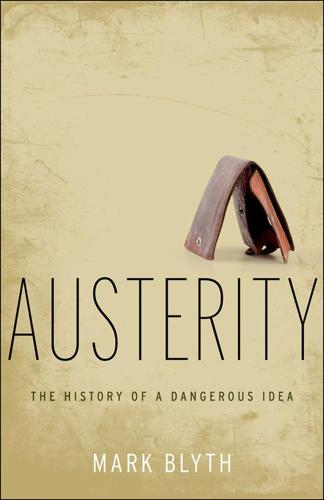
Austerity: The History of a Dangerous Idea
by
Mark Blyth
Published 24 Apr 2013
Graber, “Constitutionalizing the Economy,” 45. 16. Berghahn and Young, “Reflections,” passim. 17. Ralf Ptak, “Neoliberalism in Germany: Revisiting the Ordoliberal Foundations of the Social Market Economy” in The Road From Mont Pelerin: The Making of the Neoliberal Thought Collective, ed. Philip Mirowski and Dieter Plehwe (Cambridge, MA: Harvard University Press, 2009), 102. 18. Gerber, “Constitutionalizing the Economy,” 48–49. 19. If you detect echoes of the Eurozone debacle here, you should. 20. Crudely, supply creates its own demand. 21. Carl J. Freidrich, “The Political Thought of Neo-Liberalism” American Political Science Review 49, 2 (1955): 511.

Age of Anger: A History of the Present
by
Pankaj Mishra
Published 26 Jan 2017
A handy digest of bien pensant thinking about globalization is Thomas Friedman’s The Lexus and the Olive Tree (New York, 1999). For a counter-critique, see Edward Luttwak’s Turbo-Capitalism: Winners and Losers in the Global Economy (New York, 1998). Two revealing genealogies of neo-liberalism are Angus Burgin, The Great Persuasion: Reinventing Free Markets since the Depression (Cambridge, MA, 2012), and Philip Mirowski and Dieter Plehwe (eds), The Road from Mont Pèlerin: The Making of the Neoliberal Thought Collective (Cambridge, MA, 2009). On the loss of political spaces, see Saskia Sassen, Losing Control? Sovereignty in the Age of Globalization (New York, 1996). On Arendt’s notion of the common present and negative solidarity, see her essay on Karl Jaspers in Men in Dark Times (New York, 1970).
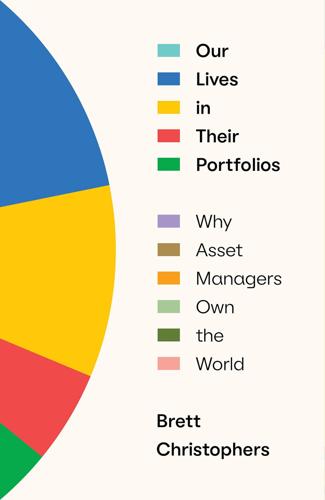
Our Lives in Their Portfolios: Why Asset Managers Own the World
by
Brett Chistophers
Published 25 Apr 2023
For more than a decade now, climate change has been framed by global elites as a quintessential case of ‘market failure’. In this way of thinking, we – society – continue to emit greenhouse gases specifically because the market has failed to recognise the full costs of those emissions. And just as important as the diagnosis is the recommended cure. As thinkers such as Philip Mirowski have repeatedly noted, the neoliberal answer to purported market failures is never to replace markets with other mechanisms of allocation, governance or regulation, but rather always to try to make markets work better. So it has been, and continues to be, with climate. We can ‘solve’ the crisis, elites insist, by getting the price – not least the price of carbon – ‘right’.
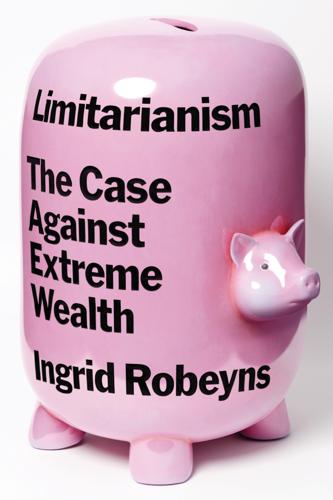
Limitarianism: The Case Against Extreme Wealth
by
Ingrid Robeyns
Published 16 Jan 2024
Goodin, Reasons for Welfare: The Political Theory of the Welfare State (Princeton, NJ: Princeton University Press, 1988), and Joseph Heath, “The Benefits of Cooperation,” Philosophy and Public Affairs 34:4 (2006), pp. 313–51. 8. Chomsky, Profit over People. 9. Disney, “I Was Taught from a Young Age to Protect My Dynastic Wealth.” 10. Oreskes and Conway, The Big Myth. For accounts of the earliest neoliberal thinkers and their networks, active from the 1930s onward, see Philip Mirowski and Dieter Plehwe (eds), The Road from Mont Pèlerin: The Making of the Neoliberal Thought Collective, second edition, with a new preface (Cambridge, MA: Harvard University Press, 2015). 11. On prosperity theology, see britannica.com/topic/prosperity-gospel and Tara Isabella Burton, “The Prosperity Gospel, Explained: Why Joel Osteen Believes That Prayer Can Make You Rich,” VOX, September 1, 2017, vox.com/identities/2017/9/1/15951874/prosperity-gospel-explained-why-joel-osteen-believes-prayer-can-make-you-rich-trump. 12.

Surveillance Valley: The Rise of the Military-Digital Complex
by
Yasha Levine
Published 6 Feb 2018
Conway and Siegelman, Dark Hero of the Information Age, chap. 1. 17. Norbert Wiener, The Human Use of Human Beings: Cybernetics and Society (New York: Doubleday, 1950). 18. Paul N. Edwards, The Closed World: Computers and the Politics of Discourse in Cold War America (Cambridge, MA: MIT Press, 1996). 19. Philip Mirowski, Machine Dreams: Economics Becomes a Cyborg Science (Cambridge: Cambridge University Press, 2001). 20. For example, cybernetics theory formed the base of Noam Chomsky’s work. He rose to fame by redefining the study of linguistics, and helped spark the “cognitive revolution” by positing that human language was produced by what was essentially a specialized language computer module in the human brain—like a sound card plugged into a mother board.
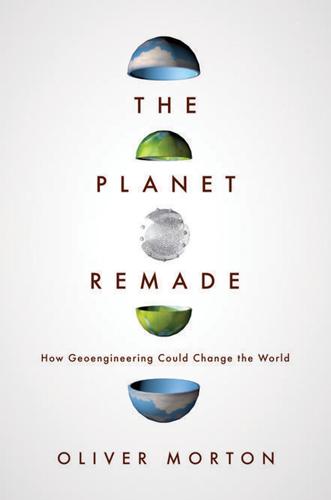
The Planet Remade: How Geoengineering Could Change the World
by
Oliver Morton
Published 26 Sep 2015
Fleming and Ann Johnson, University of Pittsburgh Press Johnston, Harold (1984) ‘Human Effects on the Global Atmosphere’ Annual Review of Physical Chemistry 35 481–505 Jones, Andy, Haywood, Jim and Boucher, Olivier (2009) ‘Climate Impacts of Geoengineering Maritime Stratocumulus Clouds’ Journal of Geophysical Research doi: 10.1029/2008JD011450 Jones, Andy et al. (2013) ‘The Impact of Abrupt Suspension of Solar Radiation Management (Termination Effect) in Experiment G2 of the Geoengineering Model Intercomparison Project (GeoMIP)’ Journal of Geophysical Research: Atmospheres doi: 10.1002/jgrd.50762 Keeling, Charles D. (1998) ‘Rewards and Penalties of Monitoring the Earth’ Annual Reviews of Energy and the Environment 23 25–82 Keith, David W. (2000a) ‘Geoengineering the Climate: History and Prospect’ Annual Review of Earth and Planetary Sciences 25 245–284 Keith, David W. (2000b) ‘The Earth is Not Yet an Artifact’ IEEE Technology and Society Magazine 19 25–28 Keith, David W. (2010) ‘Photophoretic Levitation of Engineered Aerosols for Geoengineering’ PNAS 107 16428–16431 Keith, David W. (2013) A Case for Climate Engineering MIT Press Keith, David W., Duren, Riley and MacMartin, Douglas G. (2014) ‘Field Experiments on Solar Geoengineering: Report of a Workshop Exploring a Representative Research Portfolio’ Philosophical Transactions of the Royal Society A 372 doi: 10.1098/rsta.2014.0175 Keith, David W. and MacMartin, Douglas G. (2015) ‘A Temporary, Moderate and Responsive Scenario for Solar Geoengineering’ Nature Climate Change doi: 10.1038/nclimate2493 Khan, Ehsan et al. (2001) Response Options to Limit Rapid or Severe Climate Change: Assessment of Research Needs US Department of Energy King, Paul – see May, James Kingsland, Sharon E. (1994) ‘Economics and Evolution: Alfred James Lotka and the Economy of Nature’ in Natural Images in Economic Thought: ‘Markets Read in Tooth and Claw’ ed Philip Mirowski, Cambridge University Press Kingsland, Sharon E. (1995) Modeling Nature: Episodes in the History of Population Ecology Chicago University Press Kintisch, Eli (2010) Hack the Planet John Wiley and sons Klein, Naomi (2014) This Changes Everything: Capitalism vs. the Climate Simon & Schuster (2014) Kravitz, Ben et al. (2013) ‘Climate Model Response from the Geoengineering Model Intercomparison Project (GeoMIP)’ Journal of Geophysical Research: Atmospheres doi: 10.1002/jgrd.50646 Kravitz, Ben et al. (2014) ‘A Multi-Model Assessment of Regional Climate Disparities Caused by Solar Geoengineering’, Environmental Research Letters 9 doi: 10.1088/1748–9326/9/7/074013 Kump, Lee R. et al. (2013) The Earth System (3rd edition) Pearson Kunzig, Robert and Broecker, Wallace S. (2008) Fixing Climate: The Story of Climate Science – and How to Stop Global Warming Profile Lamb, Hubert Horace (1971) ‘Climate-Engineering Schemes to Meet a Climatic Emergency’ Earth-Science Reviews 7 87–95 Lamb, Hubert Horace (1972) Climate: Present, Past and Future Methuen Lane, Lee et al. (2007) Workshop Report on Managing Solar Radiation NASA/CP-2007-214558 Langmuir, Charles H. and Broecker, Wally (2012) How to Build a Habitable Planet: The Story of Earth from the Big Bang to Humankind Princeton University Press Latham, John (1990) ‘Control of Global Warming’ Nature 347 339–340 Latham, John et al. (2008) ‘Global Temperature Stabilization via Controlled Albedo Enhancement of Low-Level Maritime Clouds’ Philosophical Transactions of the Royal Society A 366 3969–3987 Latham, John et al. (2014) ‘Marine Cloud Brightening: Regional Applications’ Philosophical Transactions of the Royal Society A 372 doi: 10.1098/rsta.2014.0053 Latour, Bruno (2011) ‘Love Your Monsters’ Breakthrough Journal 2 21–28 Lauer, Axel (2009) ‘Assessment of Near-Future Policy Instruments for Oceangoing Shipping: Impact on Atmospheric Aerosol Burdens and the Earth’s Radiation Budget’ Environmental Science and Technology 43 5592–5598 Leach, Gerald (1976) Energy and Food Production IPC Science and Technology Press Lem, Stansilaw (1986) One Human Minute (translated by Catherine S.
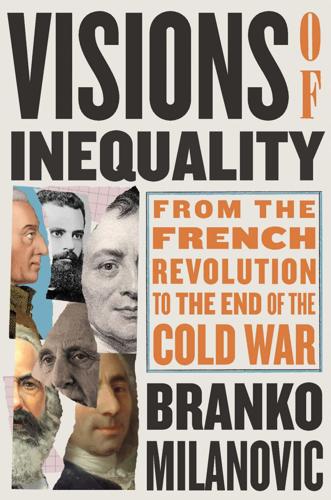
Visions of Inequality: From the French Revolution to the End of the Cold War
by
Branko Milanovic
Published 9 Oct 2023
See, for example, Christopher Bliss, Capital Theory and the Distribution of Income (Amsterdam: North-Holland, 1975); Piero Garegnani, “Heterogeneous Capital, the Production Function and the Theory of Distribution,” Review of Economic Studies 37, no. 3 (1970): 407–436. 60 . See Quinn Slobodian, The Globalists: The End of the Empire and the Birth of Neoliberalism (Cambridge, MA: Harvard University Press, 2018); and Philip Mirowski, Never Let a Serious Crisis Go to Waste: How Neoliberalism Survived the Financial Meltdown (New York: Verso, 2013). 61 . For a thorough discussion, see Avner Offer and Gabriel S ö derberg, The Nobel Factor: The Prize in Economics, Social Democracy and the Market Turn (Princeton: Princeton University Press, 2016). 62 .

Make Your Own Job: How the Entrepreneurial Work Ethic Exhausted America
by
Erik Baker
Published 13 Jan 2025
See, for example, Angus Burgin, “The Reinvention of Entrepreneurship,” in American Labyrinth: Intellectual History for Complicated Times, ed. Raymond Haberski Jr. and Andrew Hartman (Ithaca, NY: Cornell University Press, 2018); Dieter Plehwe, “Schumpeter Revival? How Neoliberals Revised the Image of the Entrepreneur,” in Nine Lives of Neoliberalism, ed. Dieter Plehwe, Quinn Slobodian, and Philip Mirowski (London: Verso, 2020). 11Russell S. Sobel, “Entrepreneurship,” https://www.econlib.org/library/Enc/Entrepreneurship.html. 12Michel Foucault, The Birth of Biopolitics: Lectures at the Collège de France, 1978–1979, trans. Graham Burchell, ed. Michael Senellart (New York: Picador, 2010); Pierre Dardot and Christian Laval, The New Way of The World: On Neoliberal Society (London: Verso, 2013); Wendy Brown, Undoing the Demos: Neoliberalism’s Stealth Revolution (New York: Zone Books, 2015). 13Recent representatives of this interpretive tendency (despite their manifold other virtues) include Elizabeth Popp Berman, Thinking Like an Economist: How Efficiency Replaced Equality in U.S.
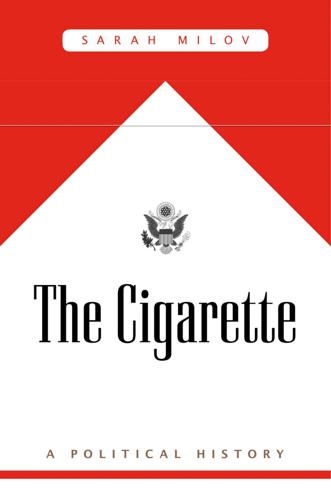
The Cigarette: A Political History
by
Sarah Milov
Published 1 Oct 2019
For a historical account of neoliberal ideas, see Angus Burgin, The Great Persuasion: Reinventing Free Markets since the Great Depression (Cambridge, MA: Harvard University Press, 2012); Daniel Stedman Jones, Masters of the Universe: Hayek, Friedman, and the Birth of Neoliberal Politics (Princeton: Princeton University Press, 2012); Philip Mirowski and Dieter Plehwe, eds., The Road from Mont Pelerin: The Making of the Neoliberal Thought Collective (Cambridge, MA: Harvard University Press, 2009). For a theoretical account of neoliberalism as a political project, see David Harvey, A Brief History of Neoliberalism (New York: Oxford University Press, 2005); Wendy Brown, Undoing the Demos: Neoliberalism’s Stealth Revolution (New York: Zone, 2015).
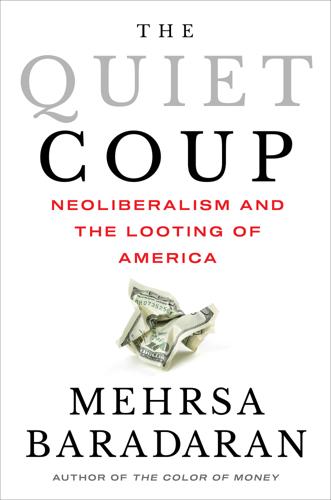
The Quiet Coup: Neoliberalism and the Looting of America
by
Mehrsa Baradaran
Published 7 May 2024
Hutt, Economics of the Colour Bar, 174, 3, 28. 31. Scott Shane, “Robert Dallek on Nixon and Kissinger,” New York Times, April 18, 2007. 32. Karin Fischer, “The Influence of Neoliberals in Chile Before, During, and After Pinochet,” in The Road from Mont Pèlerin: The Making of the Neoliberal Thought Collective, ed. Philip Mirowski and Dieter Plehwe (Cambridge, MA: Harvard University Press, 2015), 309. 33. James Burnham, Suicide of the West: An Essay on the Meaning and Destiny of Liberalism (New York: Encounter Books, 2014). 34. Enoch Powell, speech to Conservative Association meeting in Birmingham, April 20, 1968. 35.

The WikiLeaks Files: The World According to US Empire
by
Wikileaks
Published 24 Aug 2015
On the drawbacks of financialization for productive investment, see Costas Lapavitsas, Profiting Without Producing: How Finance Exploits Us All (London/New York: Verso, 2013). 61Panitch and Gindin, Making of Global Capitalism, pp. 216–19. 62“Conclusion,” in “The Financial Crisis Inquiry Report: Final Report of the National Commission on the Causes of the Financial and Economic Crisis in the United States,” February 2011, at gpo.gov. 63David McNally, Global Slump: The Economics and Politics of Crisis and Resistance (Oakland, CA: PM Press, 2011), p. 86. 64Panitch and Gindin, Making of Global Capitalism, pp. 236–7. 65Ibid., pp. 310–30. See also Leo Panitch, Sam Gindin, and Greg Albo, In and Out of Crisis: The Global Financial Meltdown and Left Alternatives (Oakland, CA: PM Press, 2010); Philip Mirowski, Never Let a Serious Crisis Go to Waste: How Neoliberalism Survived the Financial Meltdown (London/New York: Verso, 2013). 66Tony Wood, “Good Riddance to New Labour,” New Left Review II/62 (March–April 2010). CHAPTER 5: US WAR CRIMES AND THE ICC 1Lesley Wroughton, “US, Afghans Agree Most of Pact, Elders to Make Final Decision,” Reuters, October 13, 2013, at reuters.com. 2Josh Dougherty, “When Victimless Crimes Matter and Victims Don’t: The Trial of Bradley Manning,” Iraq Body Count, August 2, 2013, at iraqbodycount.org. 3Glen Greenwald, With Liberty and Justice for Some: How the Law Is Used to Destroy Equality and Protect the Powerful (New York: Metropolitan, 2011). 4White House, “Statement of President Barack Obama on Release of OLC Memos,” April 16, 2009, at whitehouse.gov. 5White House, “Statement by the President Report of the Senate Select Committee on Intelligence,” December 9, 2014, at whitehouse.gov. 6John R.
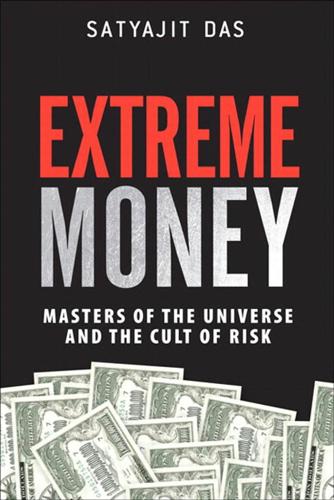
Extreme Money: Masters of the Universe and the Cult of Risk
by
Satyajit Das
Published 14 Oct 2011
Sherwin (2006) American Prometheus: The Triumph and Tragedy of J. Robert Oppenheimer, Vintage Books, New York: 62. 7. Upton Sinclair (1965) The Jungle, Dover Publications: 32. 8. Quoted in Peter Watson (2000) A Terrible Beauty: The People and Ideas that Shaped the Modern Minds—A History, Phoenix Press, London: 81. 9. Philip Mirowski (2002) Machine Dreams: Economics Becomes a Cyborg Science, Cambridge University Press, Cambridge: 203, 204. 10. Johan van Overtveldt (2007) The Chicago School: How the University of Chicago Assembled the Thinkers Who Revolutionised Economics and Business, Agate Books, Chicago: 9. 11. Ibid: 91. 12.
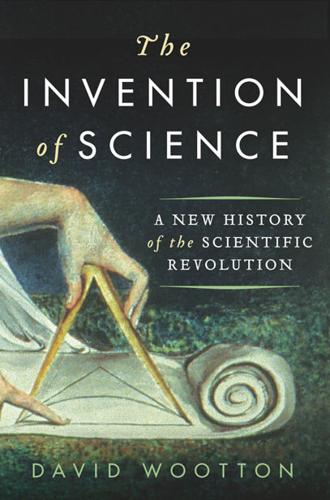
The Invention of Science: A New History of the Scientific Revolution
by
David Wootton
Published 7 Dec 2015
Snow) 16 Two New Sciences (Galileo Galilei) 296, 304, 417, 515 two spheres/one sphere theories (Earth) 113–21, 124–5, 126–7, 128–43, 245, 467 see also Earth Tycho’s nova 13, 192 see also Brahe, Tycho Uccello, Paolo 179 underdetermination 515 United Kingdom 49 United Provinces 68n units of measurement 234–5, 258–9 see also measurement Universae naturae theatrum (Jean Bodin) 132, 134, 141 universities 136 Urania propitia (Maria Cunitz) 6n Uraniborg 196 Uranus 99 Urban VIII, Pope 216 Urbino 175–6 Uriana 307 Ursus 93–4, 96 vacuums 332–5, 339–41 Aristotle denies 69, 177, 300, 311–12, 320 barometer and 245 Boyle and 349–52 competing views 105, 246 Descartes and 366, 371, 439 experiments 77n, 101, 294, 296, 336 explanations 392 laboratories and nature 323 Pascal’s unfinished treatise 297–8 Sarrotti’s efforts 477 steam and 491 Torricellian tubes 324 Vadianus, Joachim Aristotle’s fallibility 523 Earth’s centre of gravity 138 experience and 247 Habes lector 128 India and Africa as antipodes 137 man of many talents 125 van Helmont, Jean Baptiste Boyle influenced by 294, 297 garlic and magnets 279 Jesuits enraged by 291 ‘theory’, use of word 395 weapon salve book 287, 289, 292 Vanini, Giulio Cesare 75 vanishing point 176–9 ‘Vanity of Authors, The’ (Samuel Johnson) 474 Vanity of Dogmatizing, The (Joseph Glanvill) 295, 512n Variation of the Compass, The (William Borough) 331 Vasari, Giorgio 36, 167 Vaucanson, Jacques de 439, 440 Venice 8, 106, 215, 524 Venus 224–9 as seen from earth 526 changes in apparent size 148 distances from sun 145 Galileo begins to observe 222, 224 Galileo publishes on 94 Morning Star and Evening Star 66, 91 phases discovered 24n, 194, 197, 245–6, 515, 523 Tycho Brahe’s nova and 13, 192 Venus Seen on the Sun 149n Verbiest, Ferdinand 180, 182 Vergil 454 Vergil, Polydore 65–8, 93, 176, 339 Versailles 496 Vesalius, Andreas 182–6 see also Fabric of the Human Body muscles of the body 185 new fact-grounded science of 302 priority claims and 97 surgical concerns 207 Vespucci, Amerigo Copernicus indebted to 143 ‘discovery’, the word 65 discovery and invention 60 facts, absence of 255 important book on 76 important features of voyages 136 Mundus novus 121 naming of America 98, 99 publication of supposed letters of 59 water and earth 124 vestiges 410, 529 Vesuvius, Mount 301 Vicentinis, Alexander de 279 Vickers, Brian 355 Vikings 57, 93 Villani, Filippo 451 ‘Visible Hand, A’ (Philip Mirowski) 520n Visigoths 451 ‘Visualization and Cognition: Drawing Things Together’ (Bruno Latour) 302 Vitruvius Cesariano’s commentary 177, 178 diagrams lost 183–4n 1521 translation 305n on Pythagoras and Archimedes’ discoveries 67n, 80, 100–1 painting of stage sets 77 perspective painting and 251 Roman machinery 435, 437 Serlio popularizes 200 Vitruvius Teutsch (Johannes Petreius) vi Viviani, Vincenzo 335–6 Vögelin, Johannes 192 Voltaire women readers 474 works by 237, 396 writes on English science 10, 448 von Guericke, Otto 343, 491, 502, 506 Vulgar Errors (Pseudoxia epidemica) (Thomas Browne) 254, 304 Vulgate 59 Wacker, Mathias 211, 214 Waldseemüller, Martin Copernicus indebted to 142 discovering America?

Liberalism at Large: The World According to the Economist
by
Alex Zevin
Published 12 Nov 2019
‘Experience in state welfare has influenced academic thinking and public policy in America more than in Britain’, lamented Seldon, who cited Milton Friedman and Edward Banfield as cases of the former, Senator Daniel Moynihan of the latter: ‘Letters’, 12 May 1973. See Keith Tribe, ‘Liberalism and Neoliberalism in Britain, 1930–1980’, in The Road from Mount Pèlerin, eds. Philip Mirowski and Dieter Plehwe, Cambridge 2009, p. 89. 54.Eurocurrency markets undermined the Bretton Woods system, since they operated without reference to the official, gold-backed value of the US dollar. For the competitive deregulatory pressures they exerted on policymakers, and their role in the formation of a transatlantic ‘City-Bank-Treasury’ – ‘Federal Reserve-Wall Street-Treasury’ nexus, see J.
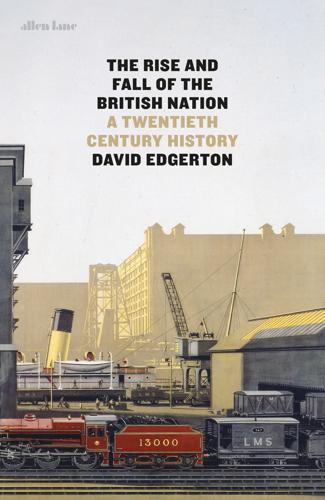
The Rise and Fall of the British Nation: A Twentieth-Century History
by
David Edgerton
Published 27 Jun 2018
—, The Roar of the Lion: The Untold Story of Churchill’s World War II Speeches (Oxford, 2013). Trentmann, Frank, Free Trade Nation: Commerce, Consumption and Civil Society in Modern Britain (Oxford, 2008). Trevor-Roper, Hugh, Hermit of Peking: The Hidden Life of Sir Edmund Backhouse (Harmondsworth, 1978). Tribe, Keith, ‘Liberalism and Neoliberalism in Britain, 1930–1980’, in Philip Mirowski and Dieter Plehwe (eds.), The Road from Mont Pèlerin: The Making of the Neoliberal Thought Collective (Cambridge, Massachusetts, 2009), pp. 68–7. Turner, John (ed.), Businessmen and Politics (London, 1984). Twigge, S. R., The Early Development of Guided Weapons in the United Kingdom 1940–1960 (Amsterdam, 1993).
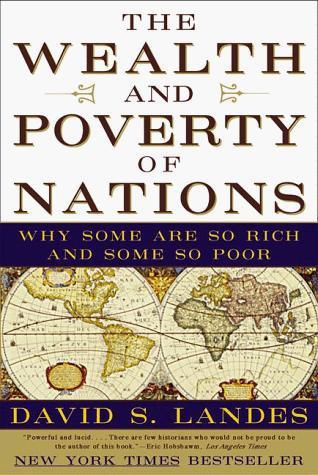
The Wealth and Poverty of Nations: Why Some Are So Rich and Some So Poor
by
David S. Landes
Published 14 Sep 1999
Other venues where I was able to try out some of this material were meetings in Ferrara and Milan (Bocconi University) in 1991; the III Curso de Historia de la Técnica in the Universidad de Salamanca in 1992 (organizers Julio Sanchez Gomez and Guillermo Mira); a Convegno in 1993 of the Società Italiana degli Storici dell’Economia (Vera Zamagni, secretary) on the theme of “Innovazione e Sviluppo” several sessions of the Economic History Workshop at Harvard; the “Jornadas Bancarias” of the Asociación de Bancos de la República Argentina in Buenos Aires in 1993 on “Las Estrategias del Desarrollo” a congress in Hull, England, in 1993 (Economic History Society, Tawney Lecture); a conference in Cambridge University on “Technological Change and Economic Growth” (Emma Rothschild, organizer) in 1993; Jacques Marseille and Maurice Levy-Lcboyer’s colloquium (Institut d’Histoire économique, Paris, 1993) on “Les performances des entreprises françaises au XXe siècle” a conference on “Convergence or Decline in British and American Economic History” at Notre Dame University in 1994 (Edward Lorenz and Philip Mirowski organizers, Donald McCloskey promoter); a session on the Industrial Revolution (John Komlos organizer) at the Eleventh International Economic History Congress in Milan in 1994; and a session at the Social Science History Association in Atlanta in 1994. Also lectures in the universities of Oslo and Bergen in 1995 (Kristine Bruland and Fritz Hodne, organizers); a symposium in Paris in 1995 on the work of Alain Peyrefitte (“Valeurs, Comportements, Développement, Modernité,” Raymond Boudon organizer) dealing inter alia with regional differences in European economic development; further symposia in 1995 on “The Wealth and Poverty of Nations” in Reggio Emilia and the Bocconi University in Milan (Franco Amatori, organizer).
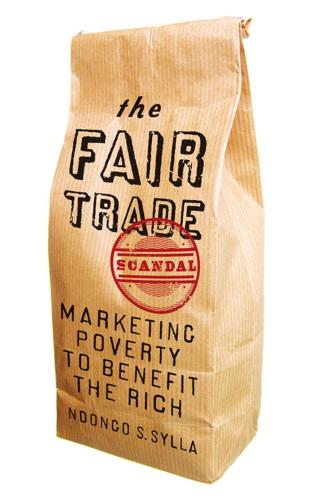
The Fair Trade Scandal: Marketing Poverty to Benefit the Rich
by
Ndongo Sylla
Published 21 Jan 2014
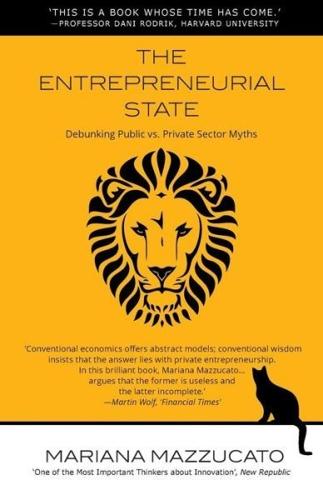
The Entrepreneurial State: Debunking Public vs. Private Sector Myths
by
Mariana Mazzucato
Published 1 Jan 2011

Priceless: The Myth of Fair Value (And How to Take Advantage of It)
by
William Poundstone
Published 1 Jan 2010
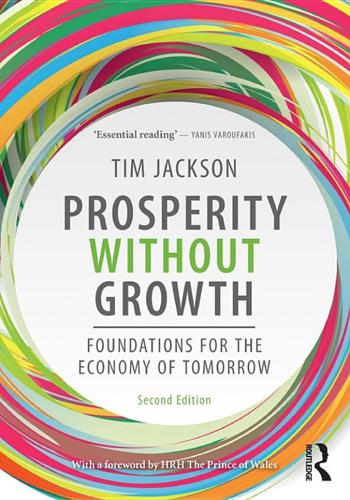
Prosperity Without Growth: Foundations for the Economy of Tomorrow
by
Tim Jackson
Published 8 Dec 2016
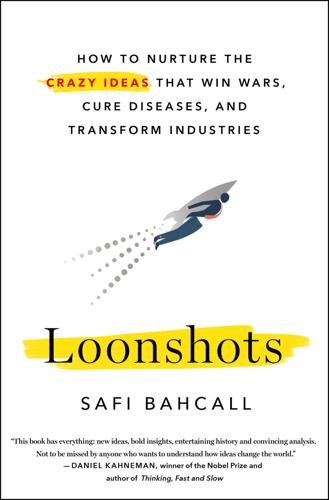
Loonshots: How to Nurture the Crazy Ideas That Win Wars, Cure Diseases, and Transform Industries
by
Safi Bahcall
Published 19 Mar 2019
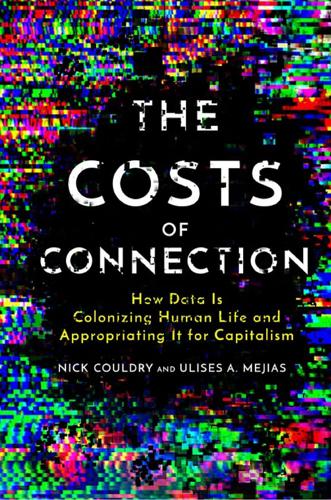
The Costs of Connection: How Data Is Colonizing Human Life and Appropriating It for Capitalism
by
Nick Couldry
and
Ulises A. Mejias
Published 19 Aug 2019
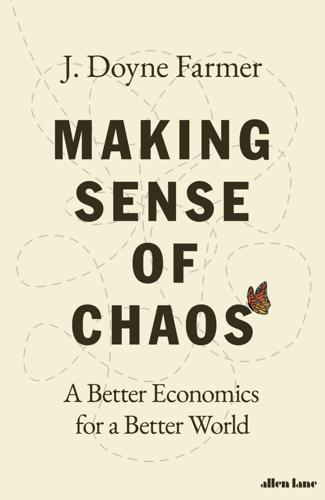
Making Sense of Chaos: A Better Economics for a Better World
by
J. Doyne Farmer
Published 24 Apr 2024
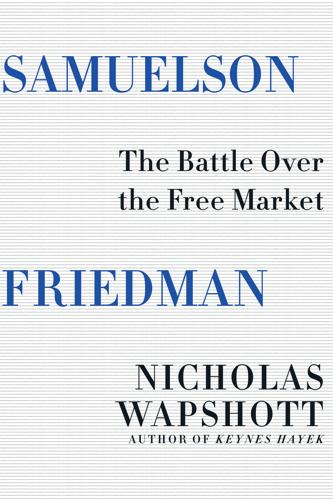
Samuelson Friedman: The Battle Over the Free Market
by
Nicholas Wapshott
Published 2 Aug 2021
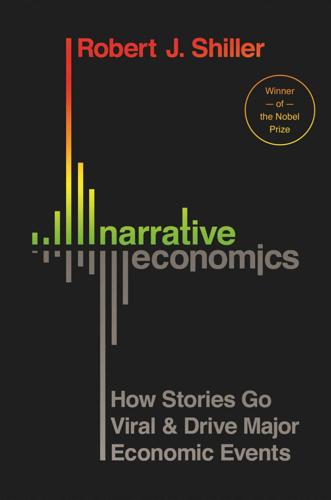
Narrative Economics: How Stories Go Viral and Drive Major Economic Events
by
Robert J. Shiller
Published 14 Oct 2019
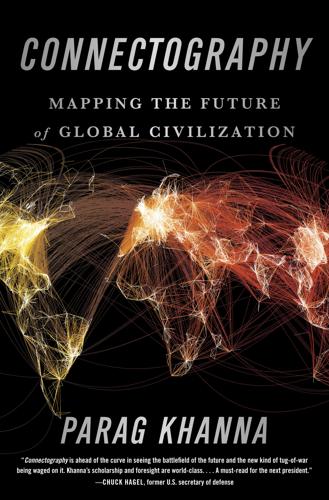
Connectography: Mapping the Future of Global Civilization
by
Parag Khanna
Published 18 Apr 2016
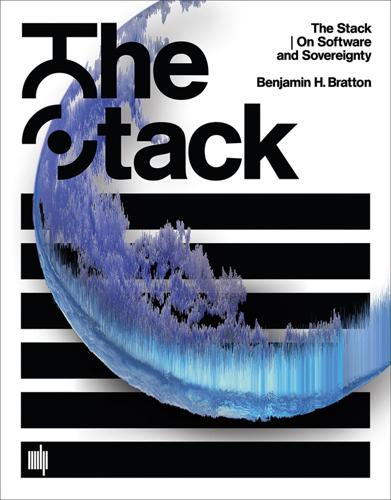
The Stack: On Software and Sovereignty
by
Benjamin H. Bratton
Published 19 Feb 2016
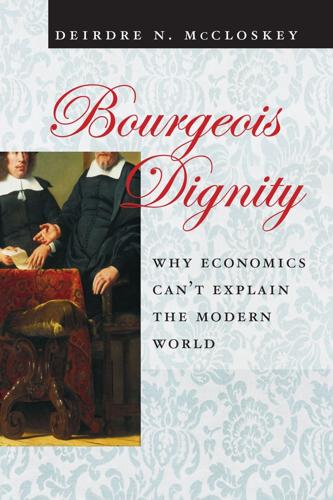
Bourgeois Dignity: Why Economics Can't Explain the Modern World
by
Deirdre N. McCloskey
Published 15 Nov 2011